Buzludzha monument is a fine example of socialist/communist – brutalist architecture. Designed by the architect Georgi Stoilov, it was opened in 1981 and was abandoned less than a decade later following communism collapse. Recently, foreign tourists and locals who dare to confront their past have been visiting the place frequently. In addition to the urban exploration thrill (the dilapidated site is not officially open and visitors must sneak inside through a narrow opening), discovering its unique artistic and architectural qualities is inspiring.
Video tour
Here’s a video tour of the monument, including the main halls in the rotunda shaped – flying saucer part, and the tower
Stills tour
In this photographic tour we shall visit the various monument spaces and pay attention to some details.
Let’s approach the site…
The monument is located on a distinct hill 1440 meters above sea level. It was built to commemorate the 90 year anniversary of the local formation of the socialist movement. Budget for the construction was raised from the public, and the monument became an important venue for Bulgaria Communist Party events.
It can be approached by a steep paved path from beneath, reminding the ascent to various religious sites such as remote mountainous Himalayan Buddhist stupas. The effort and achievement truly adds to the feeling of reaching a sanctuary.
A tour around the peculiar object is a must
An interesting feature is its symmetry, which reminds us of classic temple design such as Egyptian and Greek ones.
The majestic stairs leading to the structure are made of fine granite, and survived the vandalism that characterizes the monument interior
Looking from the entrance the the surrounding landscape, the view from the decaying building to the contemporary renewal energy resource, is a striking evidence to the course of time.
6000 workers participated in the construction. From the outside we can admire the formwork, which emphasizes the unique concrete details
Over the years, water penetrating the concrete cracks formed stalactites
We shall now start our visit in the main building shaped as a 60 meters in diameter rotunda, inspired by the Pantheon in Rome.
This is the main entrance level, with round elements on the ceiling. Statues decorated the walls but are no longer there
Beneath this level there is a service level, where toilets, wardrobe and a service counter were located.
Currently (mid May…) a 30 centimeter thick ice layer covers its floor
Going back to the main entrance level, we shall now climb one of the three main staircases, to arrive the upper – main level of the rotunda.
Staircases were covered with granite
The walls were decorated with small marble pillars
On the way up, many remains of red velvet that covered walls and ceiling parts can be seen. Touching it is like feeling the vibes of communism…
The main hall contains an outside round corridor that faces the view on the outer side, and a wall of mosaics on the inner side.
Here’s where glass windows were installed
Marble tiles covered the floor
Remains of the heating ducts
From here we can already see the 640 ton dome details
Here with additional heating ducts
We shall now enter the main hall, the highlight of the monument and a thrilling space.
Especially after the rain
The roof with the “Workers of the world unite” mosaic became the icon of the place
The seating area was covered with marble, with openings for heating
Remains of insulation keep falling from the roof
The mosaics that surround the main hall are overwhelming, depicting scenes of social life and important figures such as Blagoev, Dimitrov, Engels, Stalin and Lenin.
The mosaics covered an area of 550 square meters.
We shall now start our journey to the monument tower:
Here’s how the connecting area between the rotunda part and the tower looks like from the outside:
And here it is from the inside:
There are two shafts for vertical movement inside the tower.
One is for an elevator:
the other is an endless set of metal ladders which we climb
The shafts reach just below the area of the five-pointed stars, which are served by several metal platforms connected by metal staircases.
Remains of electricity components that served the stars illumination systems can be seen everywhere.
32 spot lights illuminated the 12 meter high stars, to be seen “as far as the Aegean Sea and the Danube”.
The site consumed 70KW of electricity.
The view from the roof of the tower is breathtaking, especially the sight of the rotunda roof covered with slats
This was a glimpse to a place “built by the people and ruined by the people”.Will Bulgarians acknowledge the cultural significance of such a place ?
Additional information
It is highly recommended to watch the documentary made by NOVA channel about Buzludzha, which includes a site tour with architect Georgi Stoilov and historical photos and footage of the place.
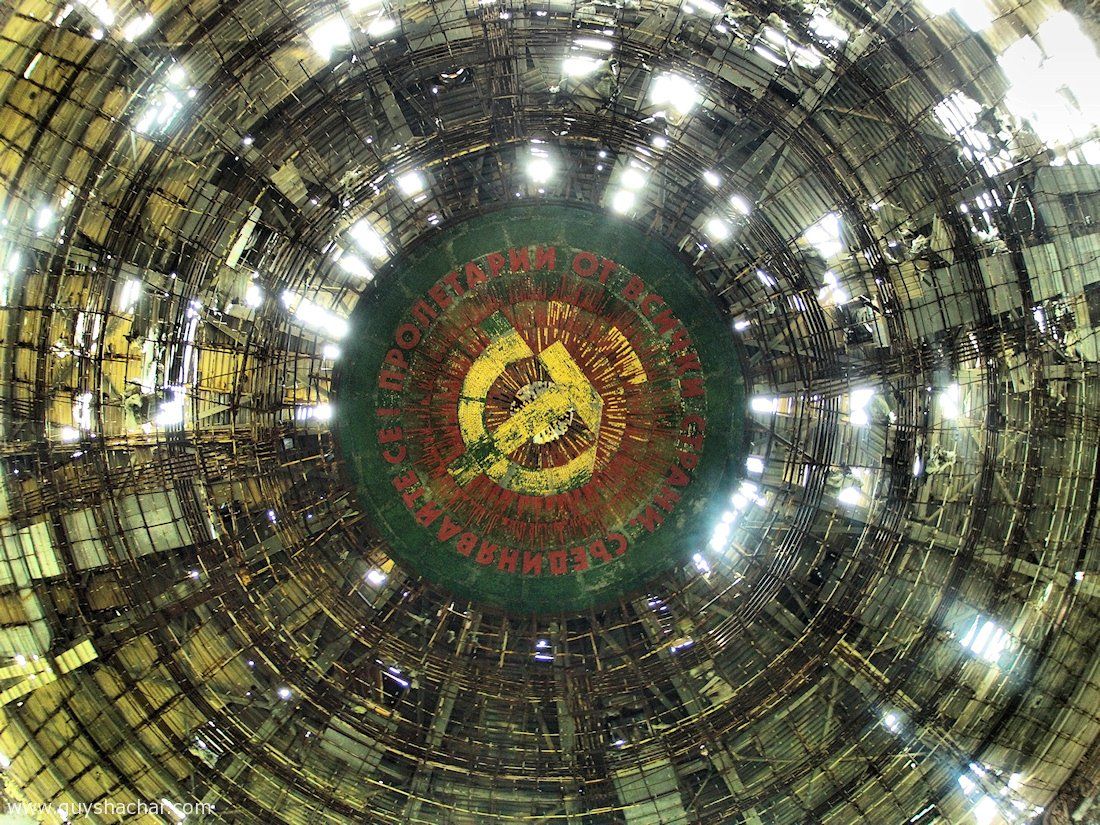
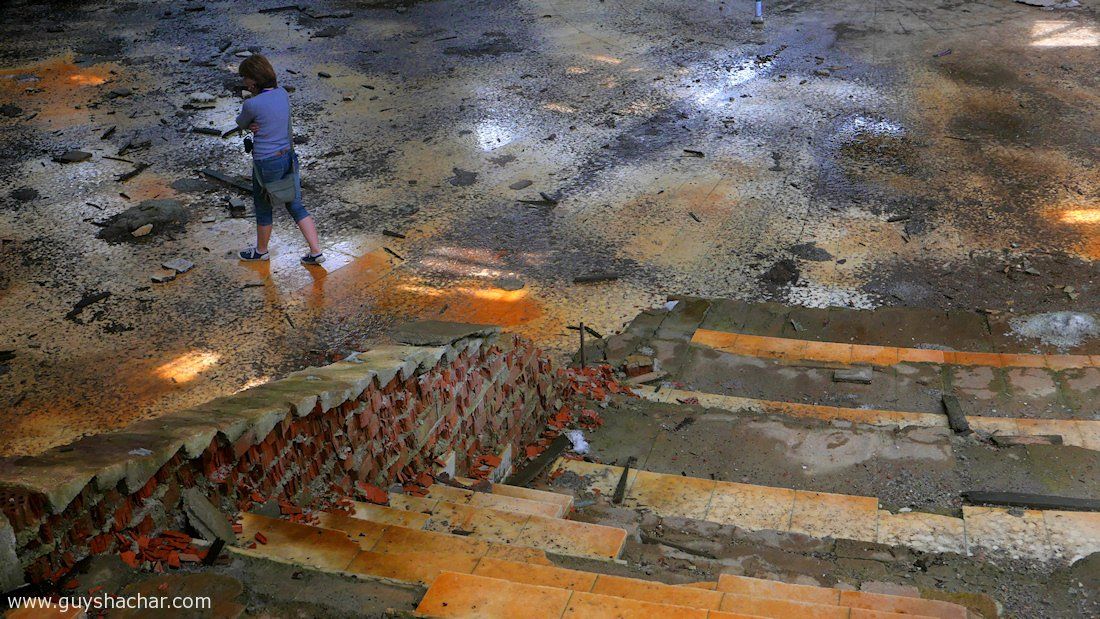
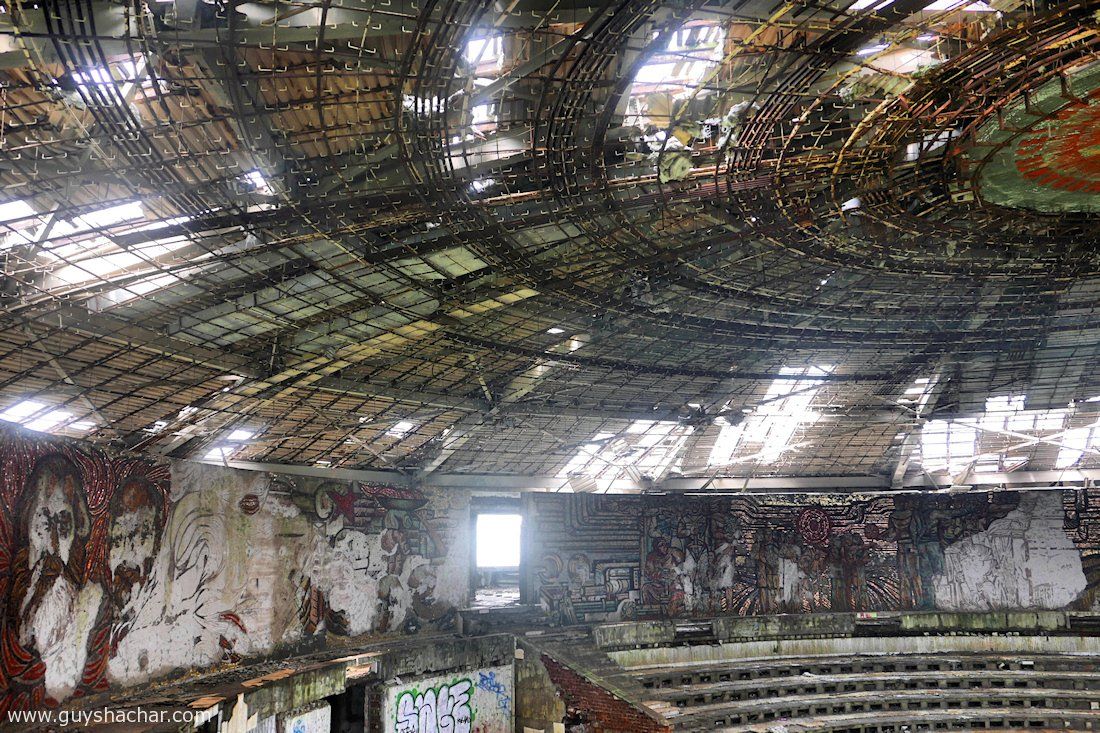
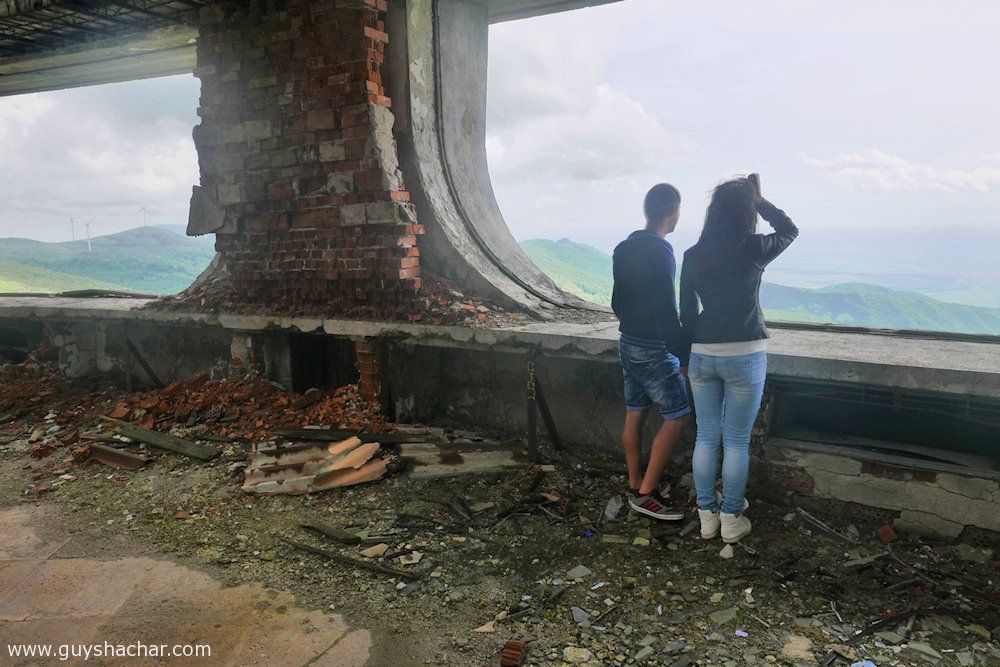
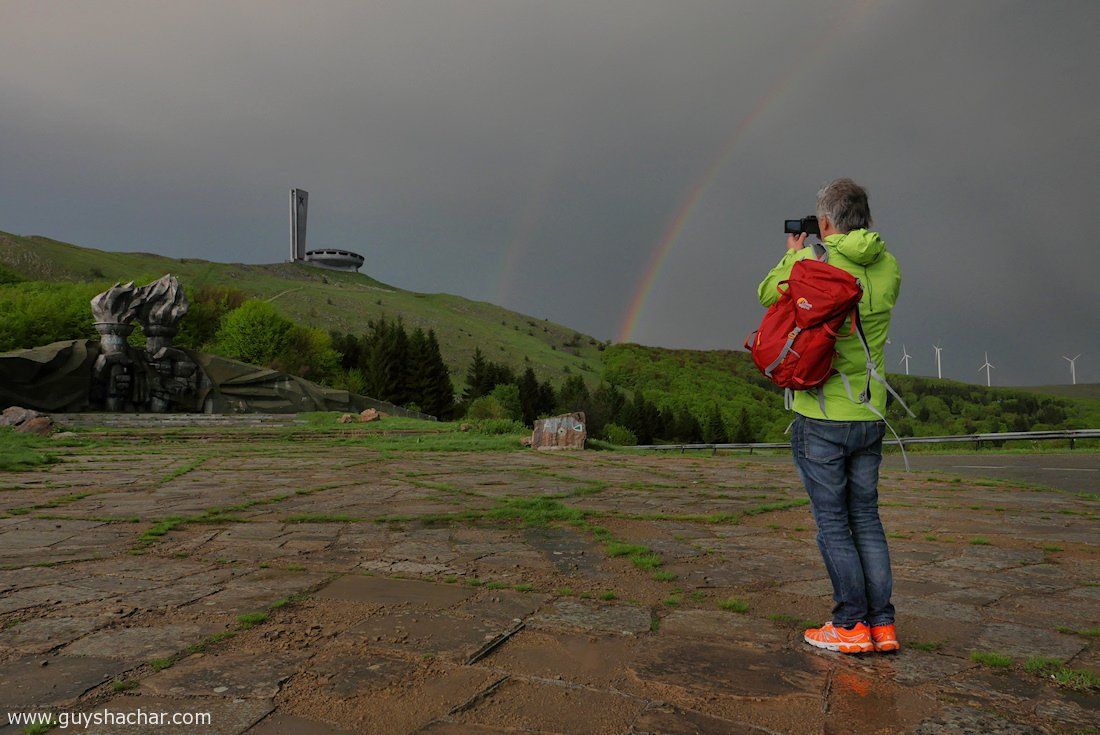
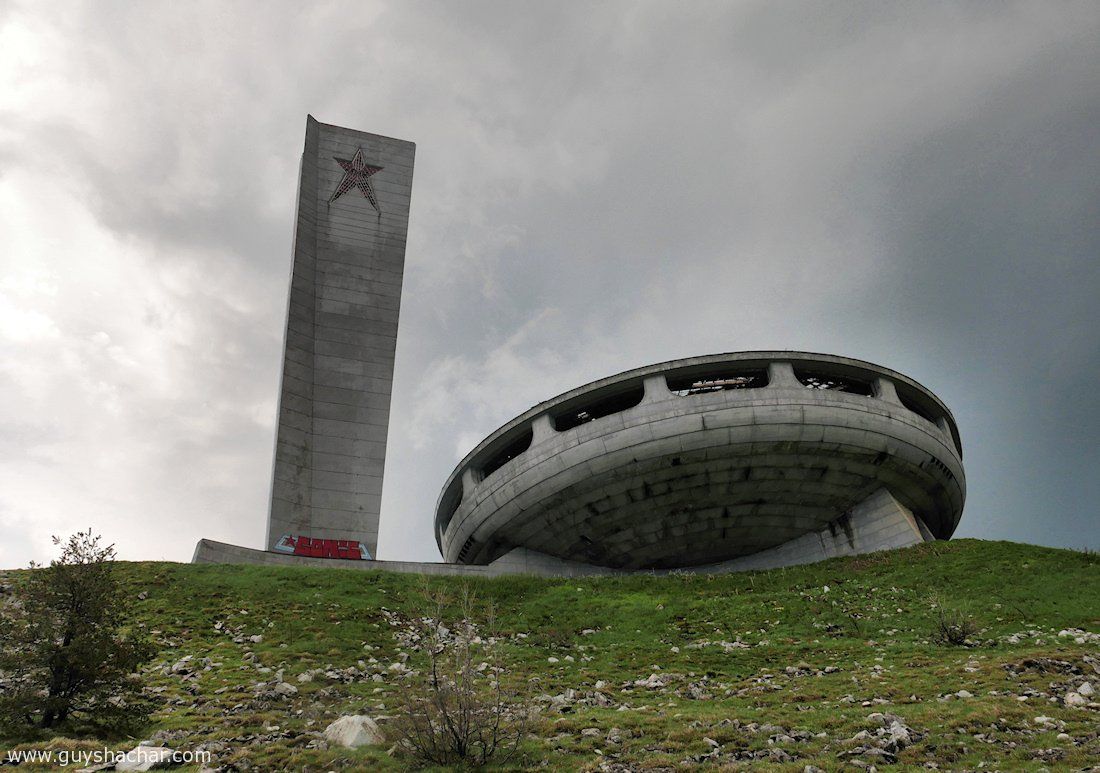
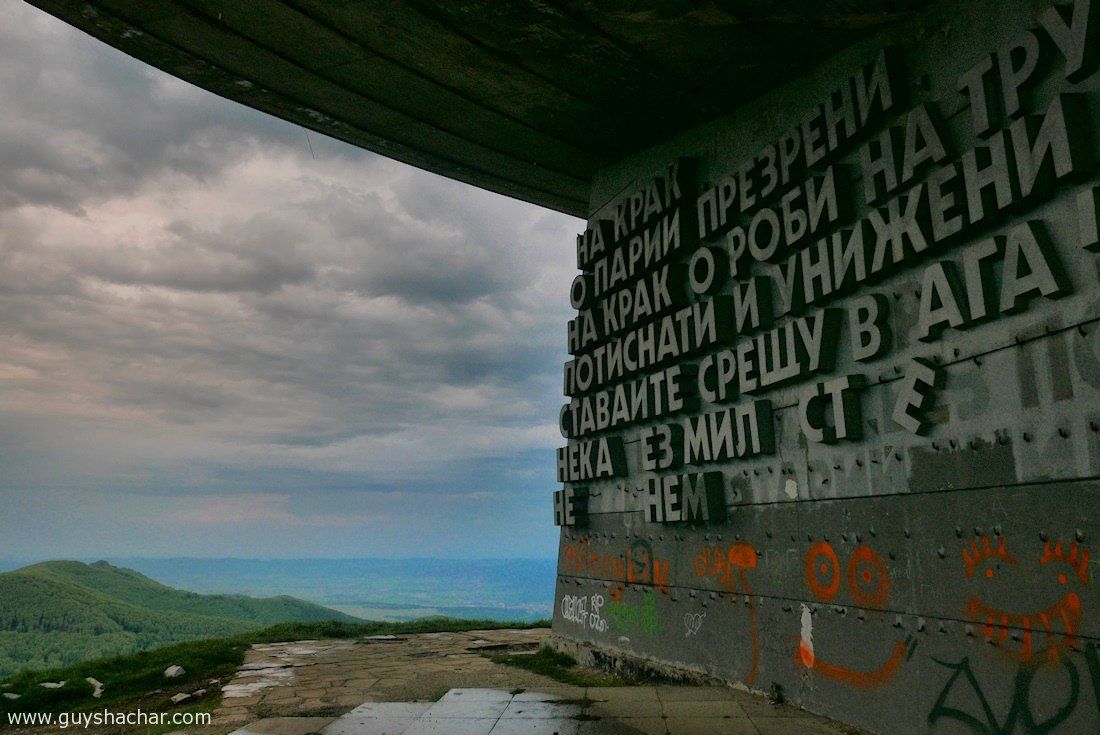
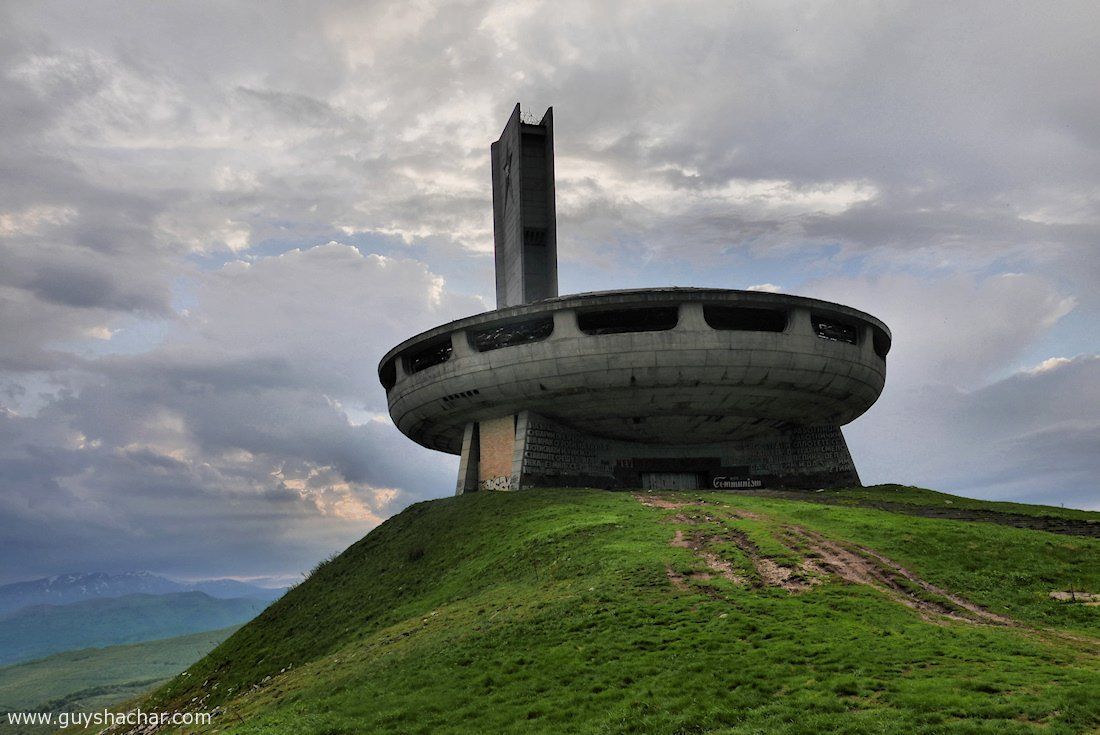
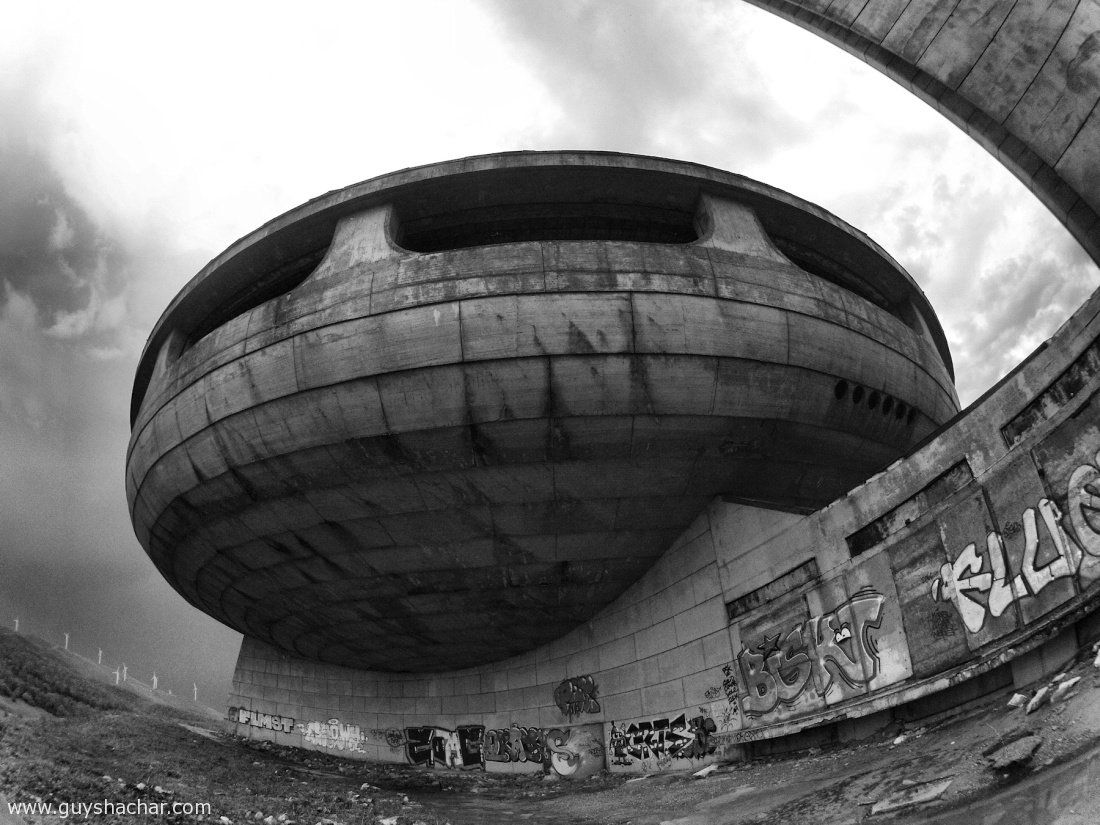
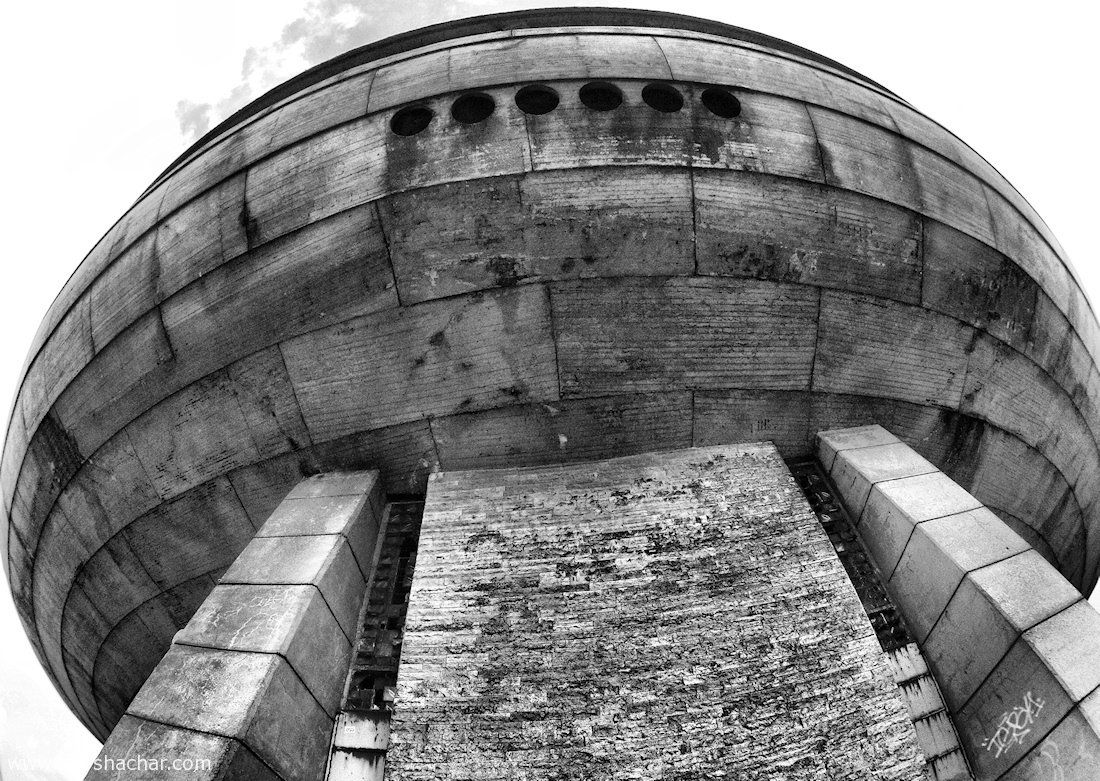
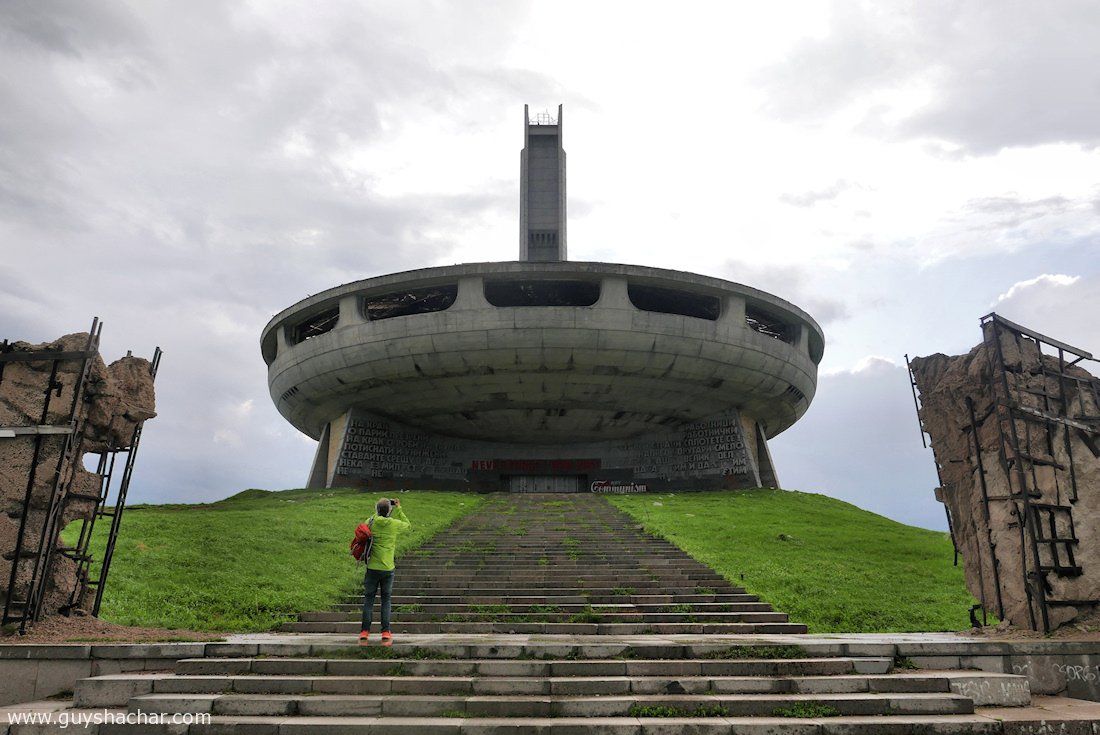
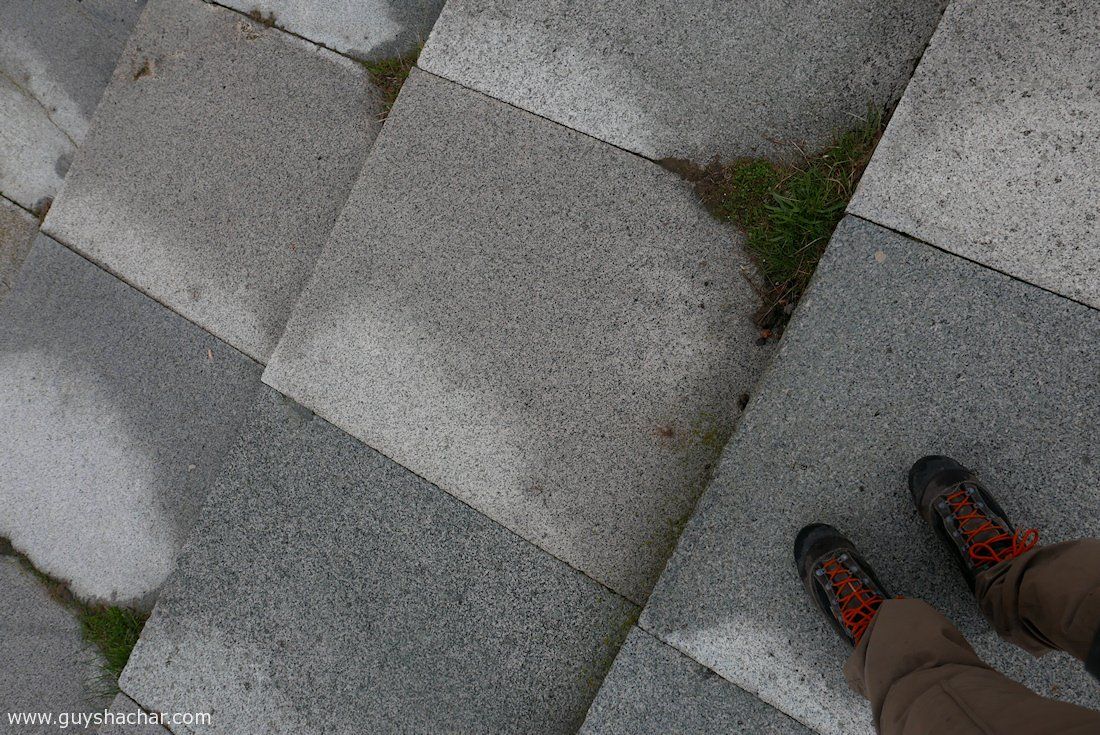
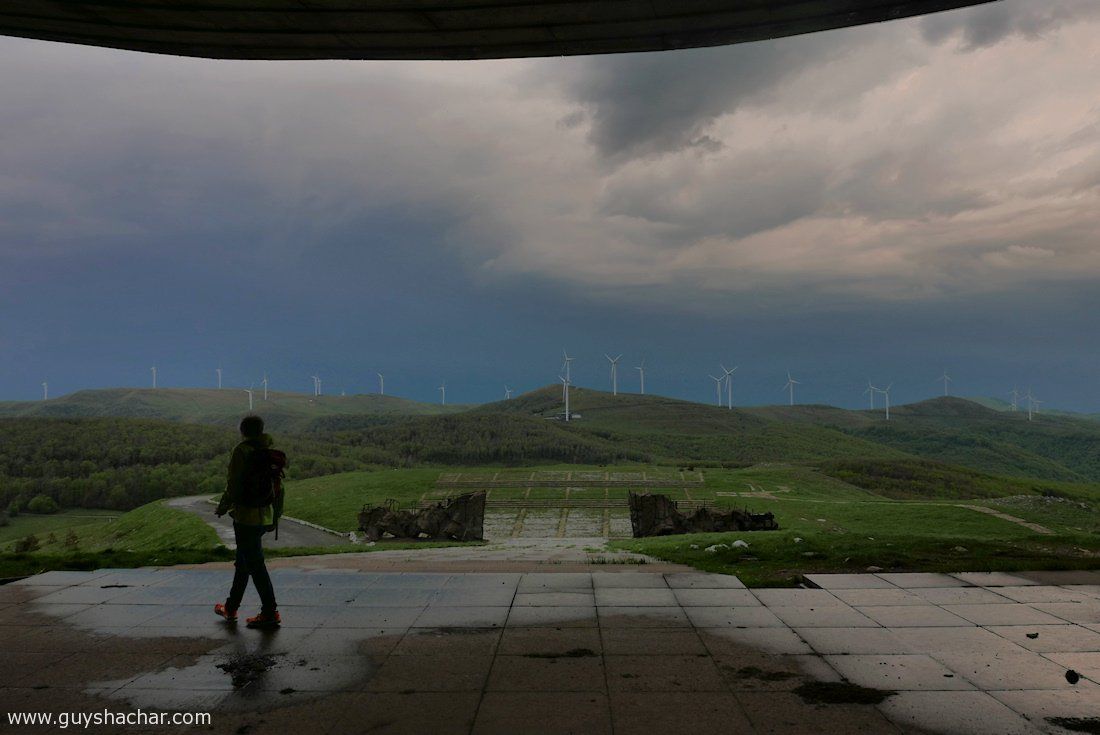
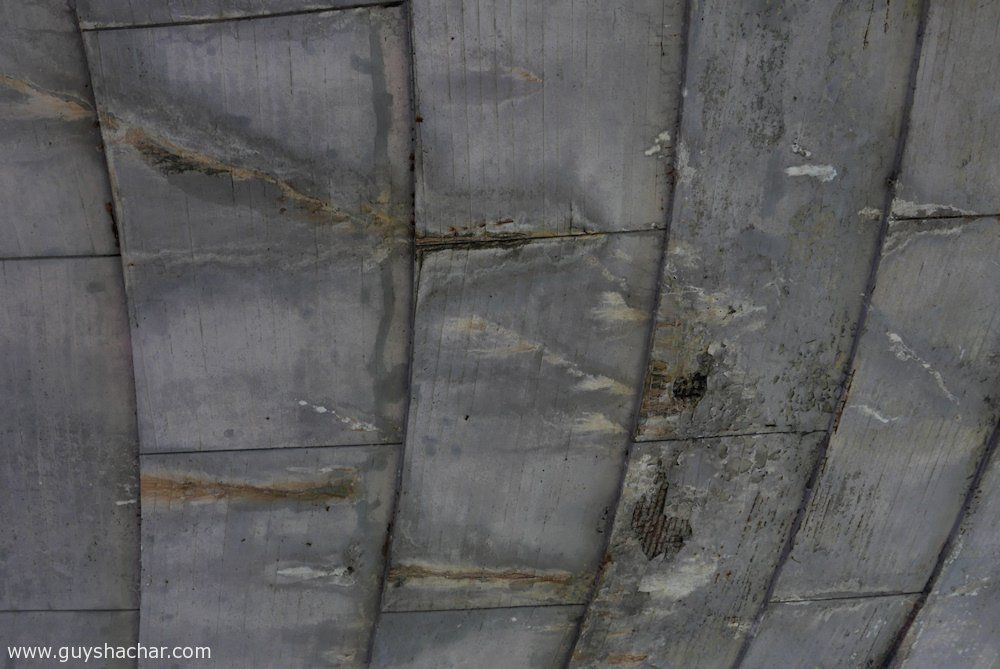
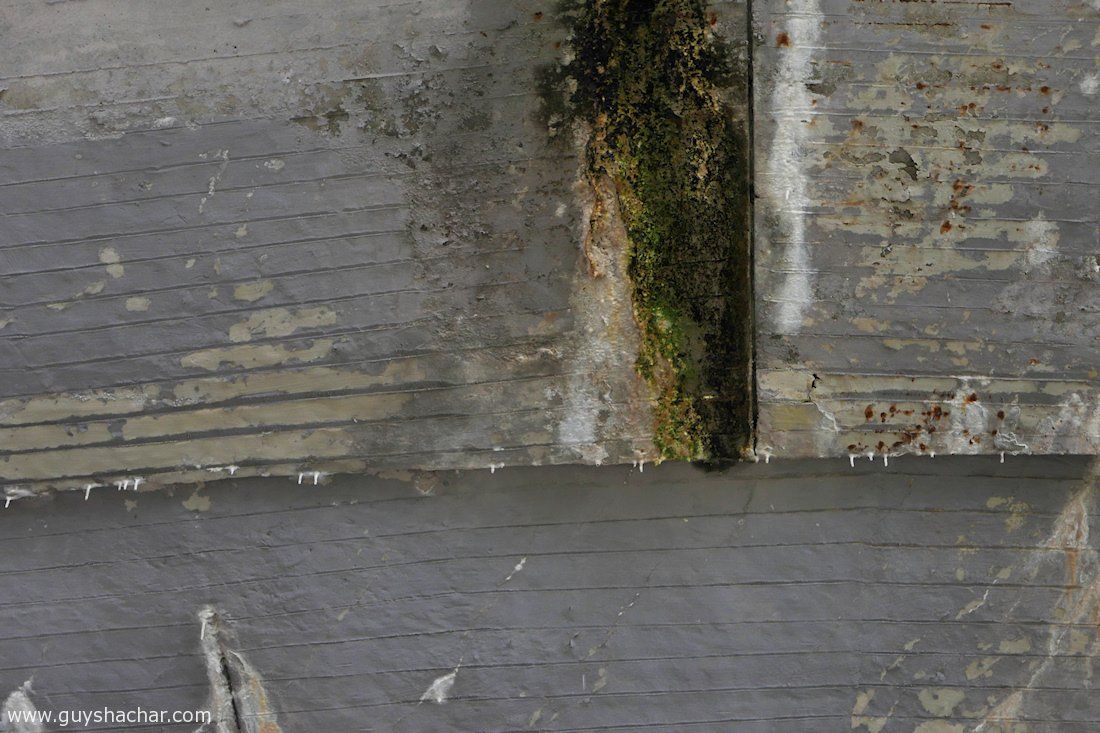
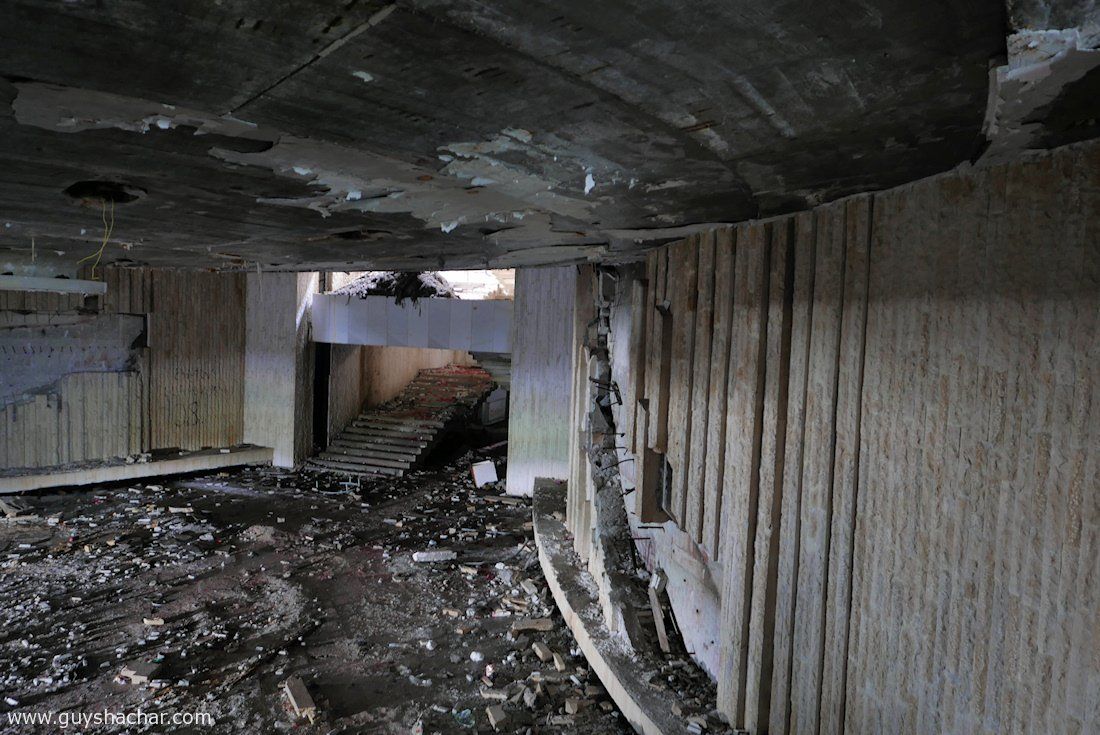
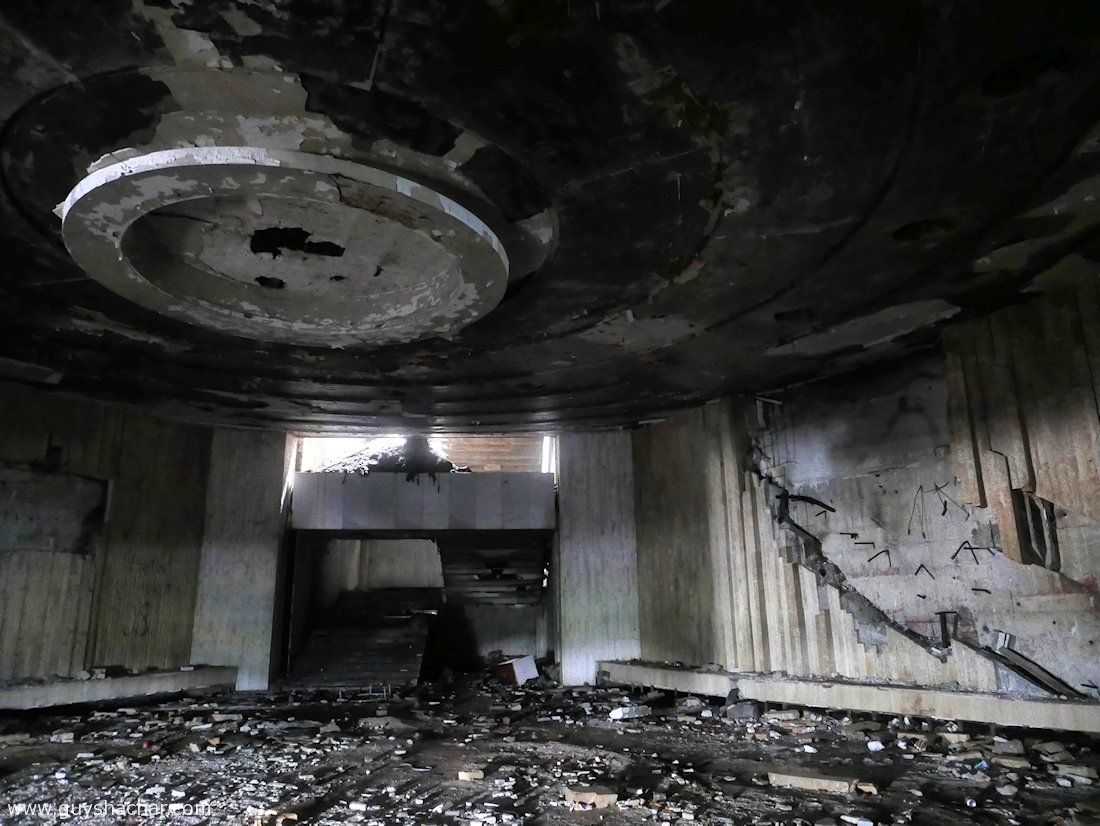
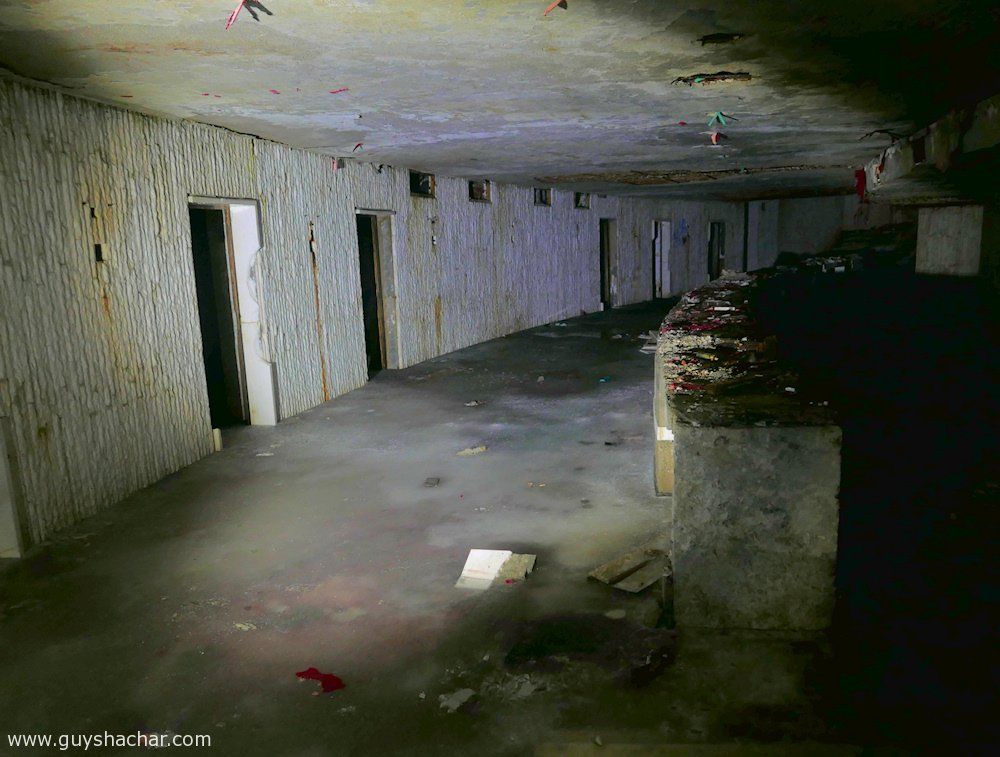
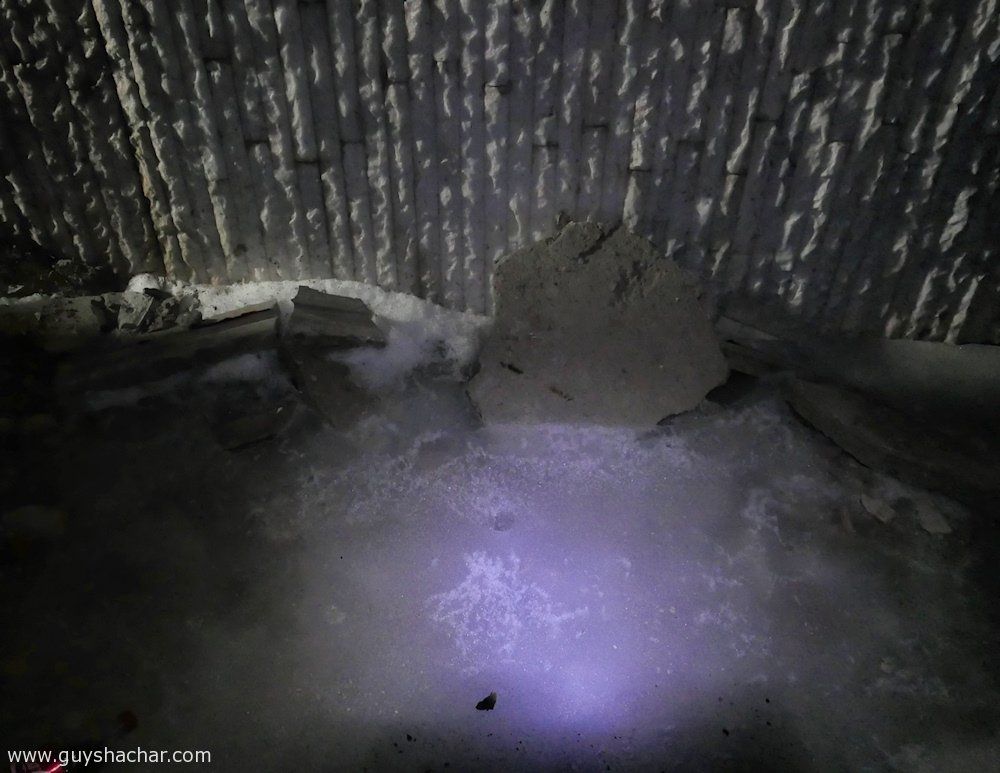
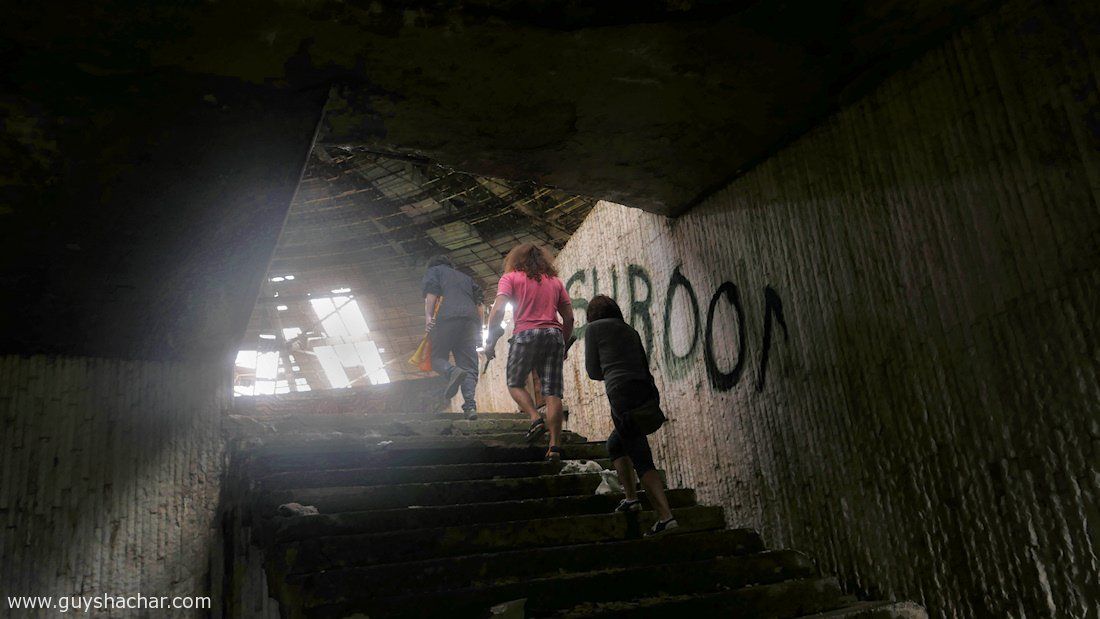
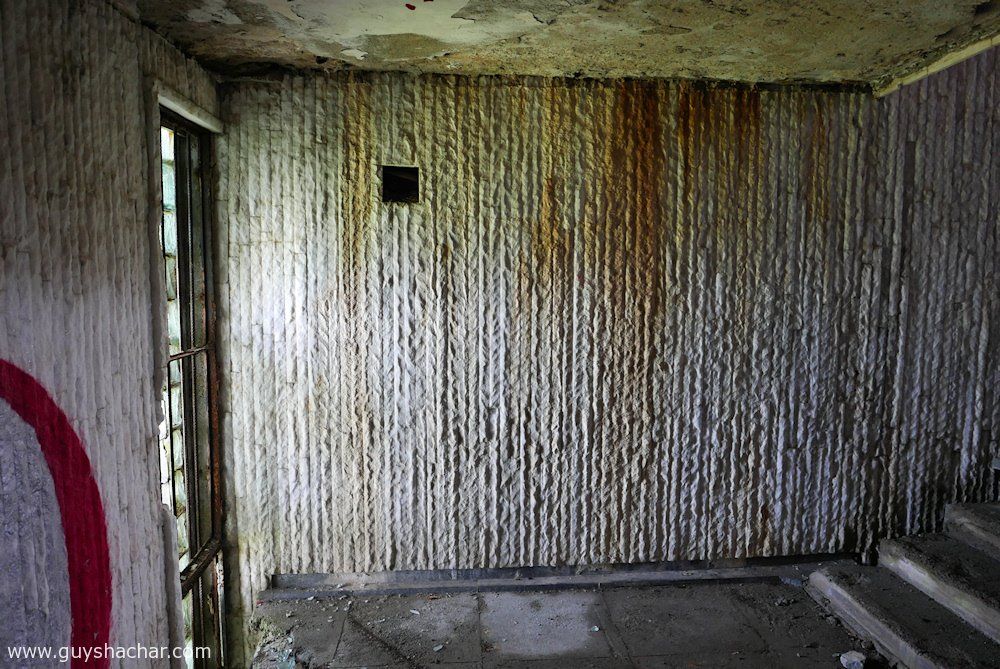
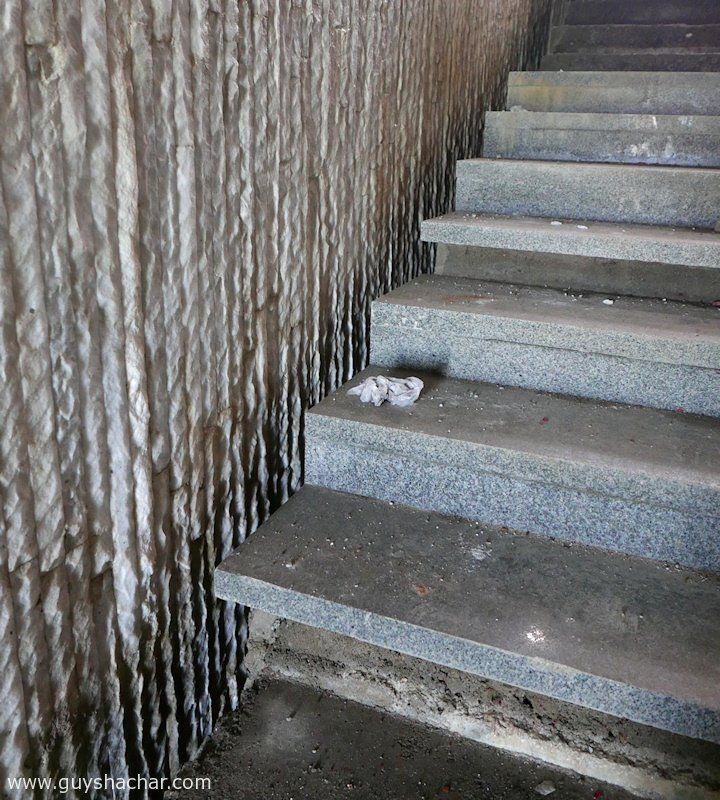
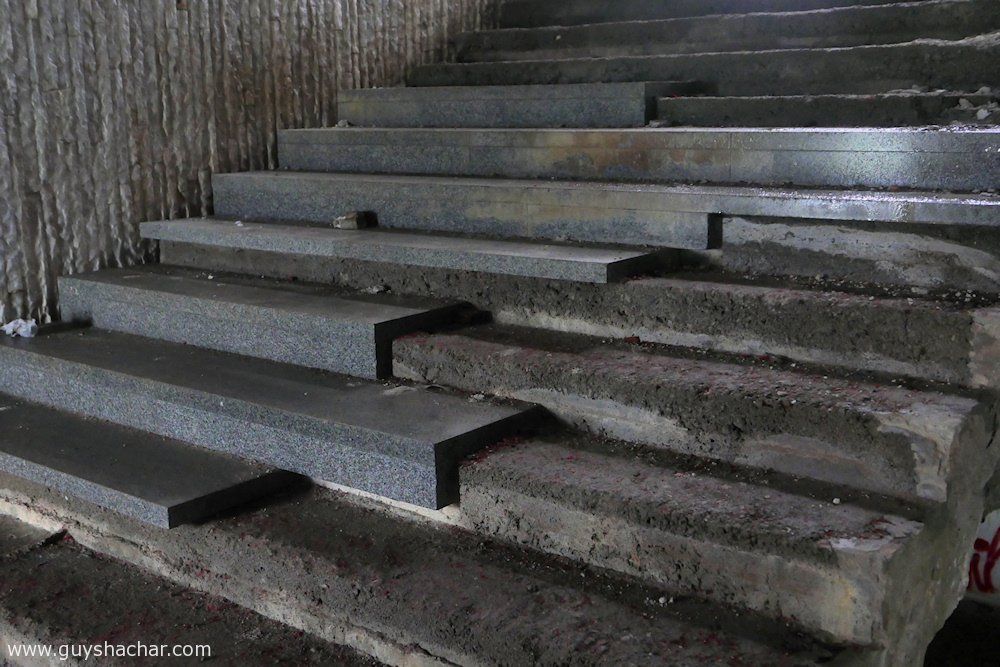
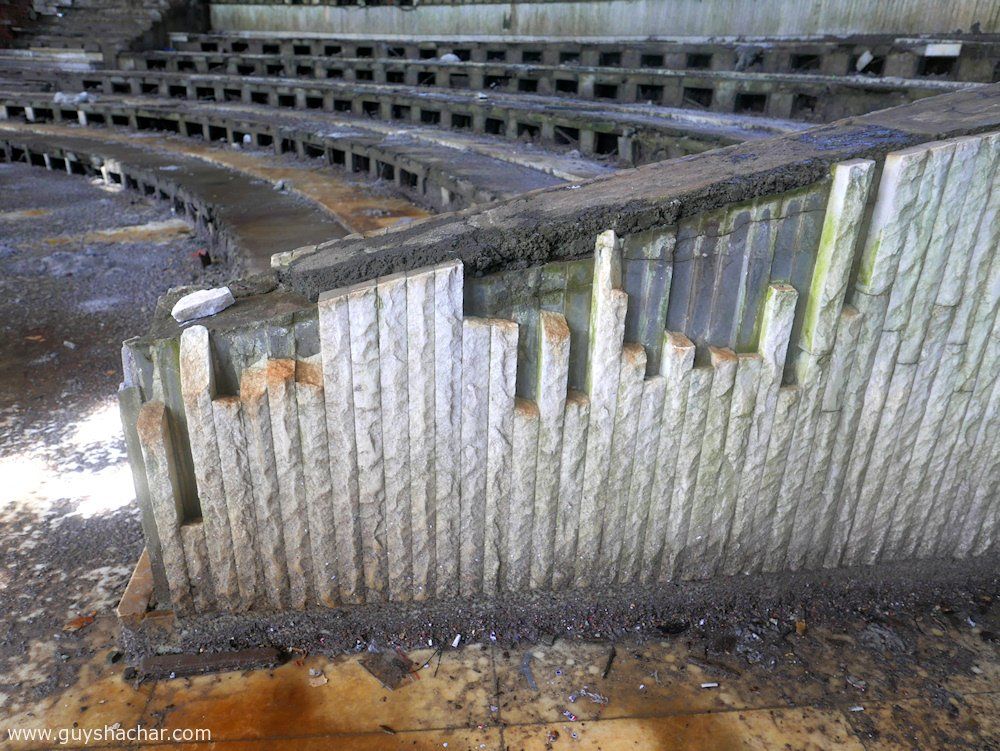
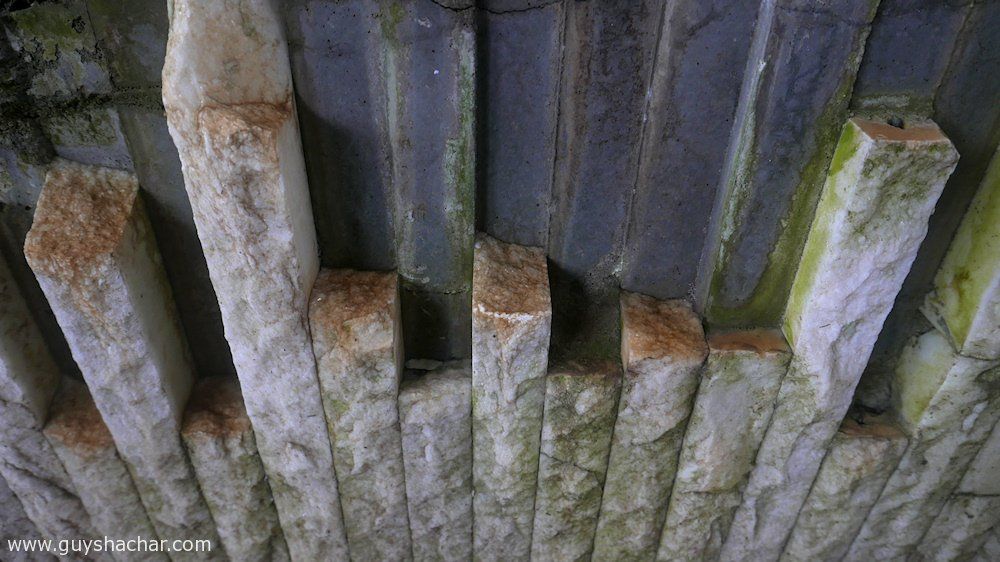
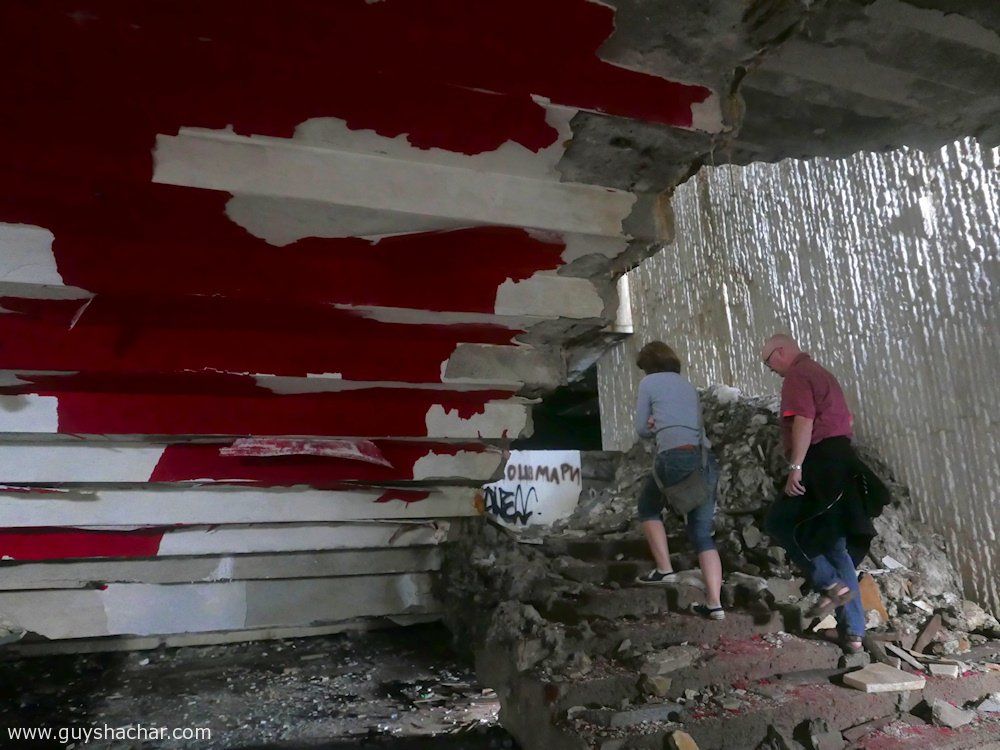
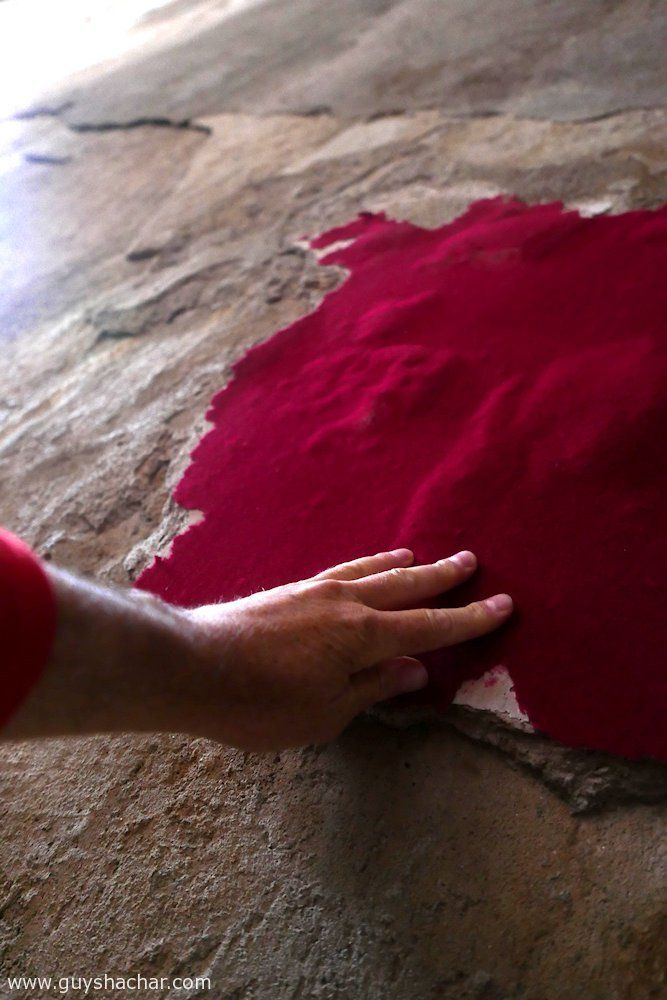
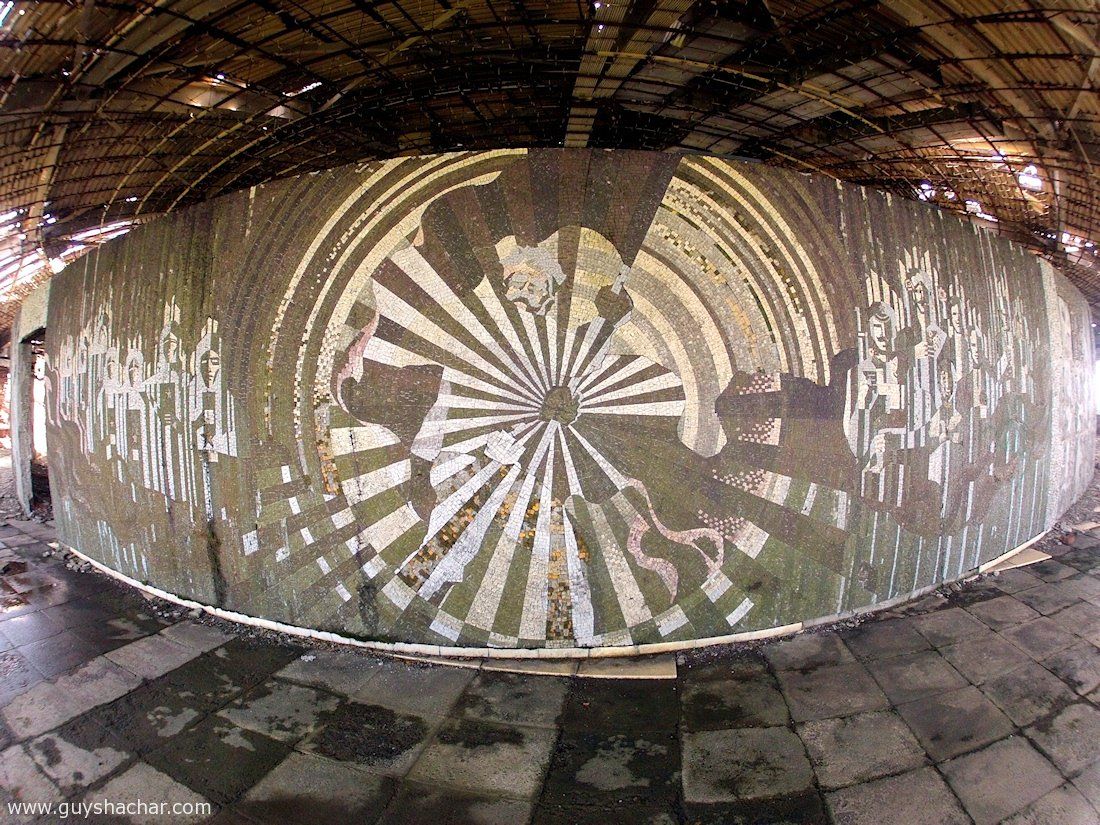
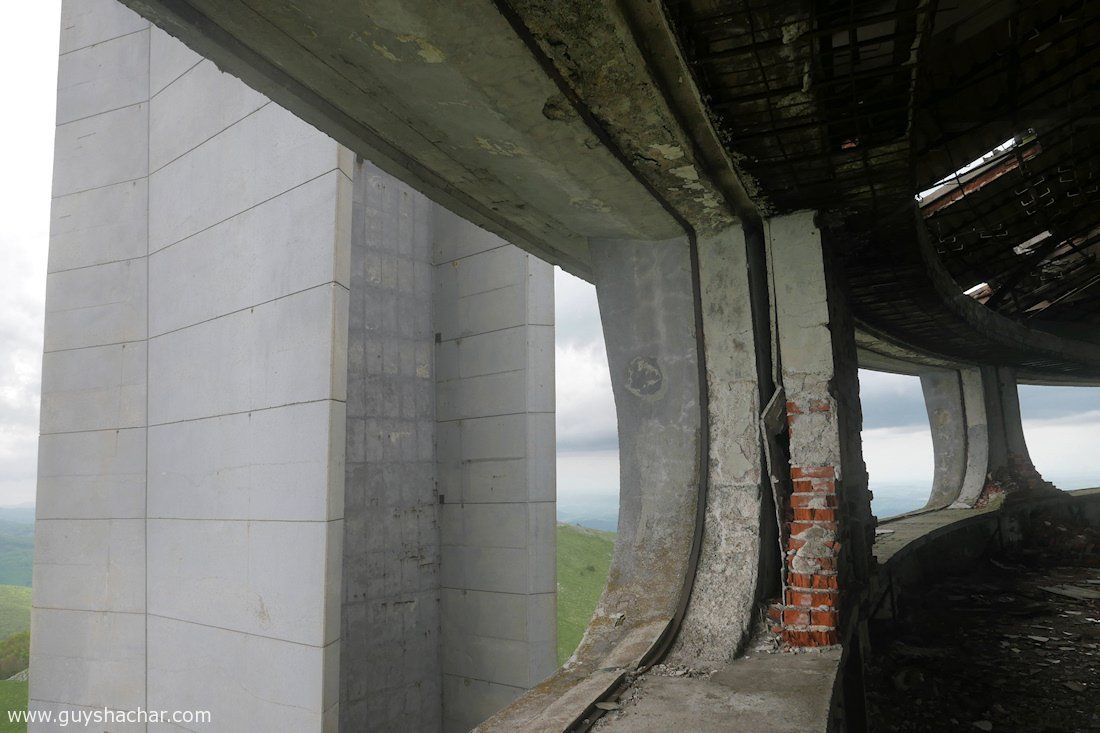
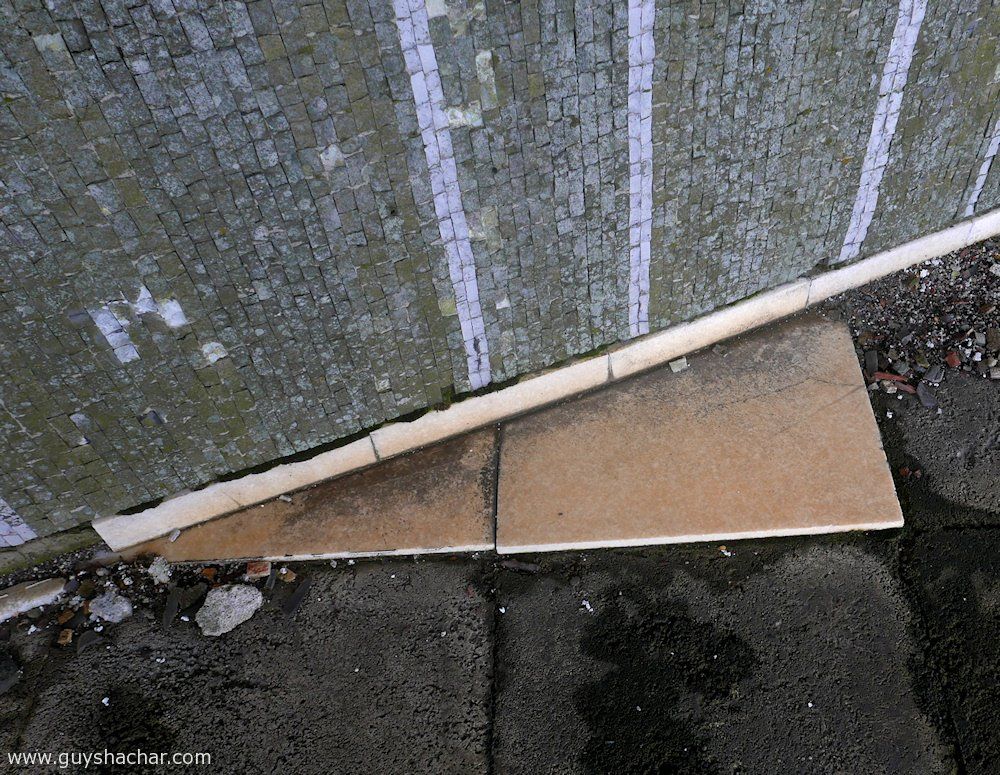
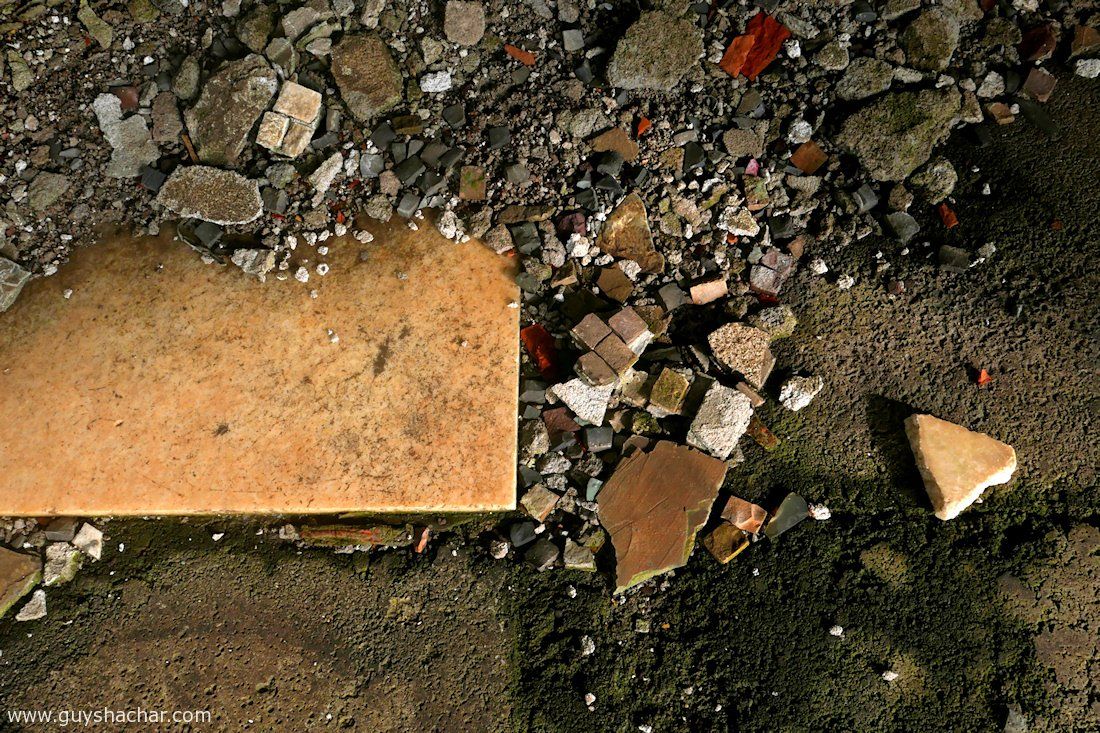
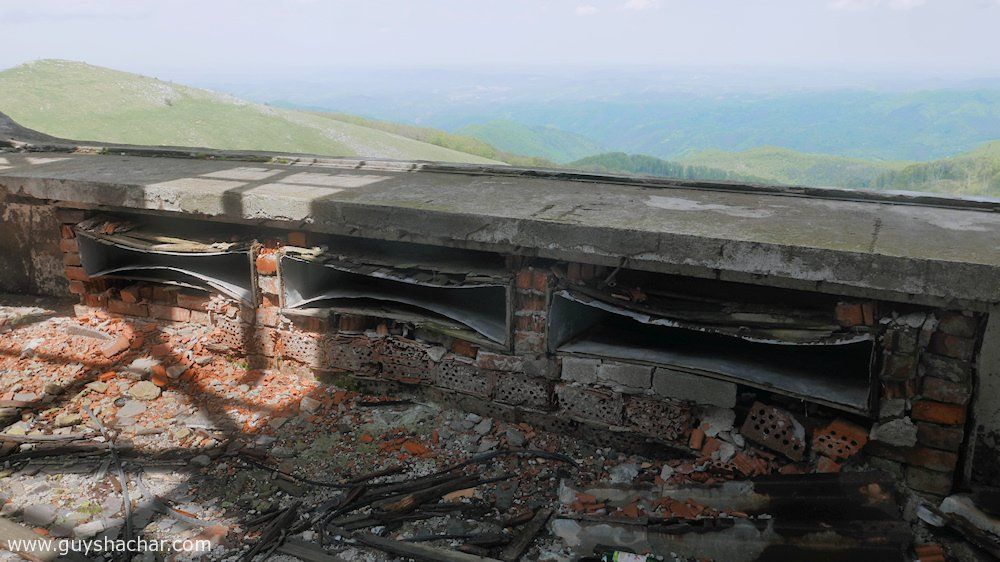
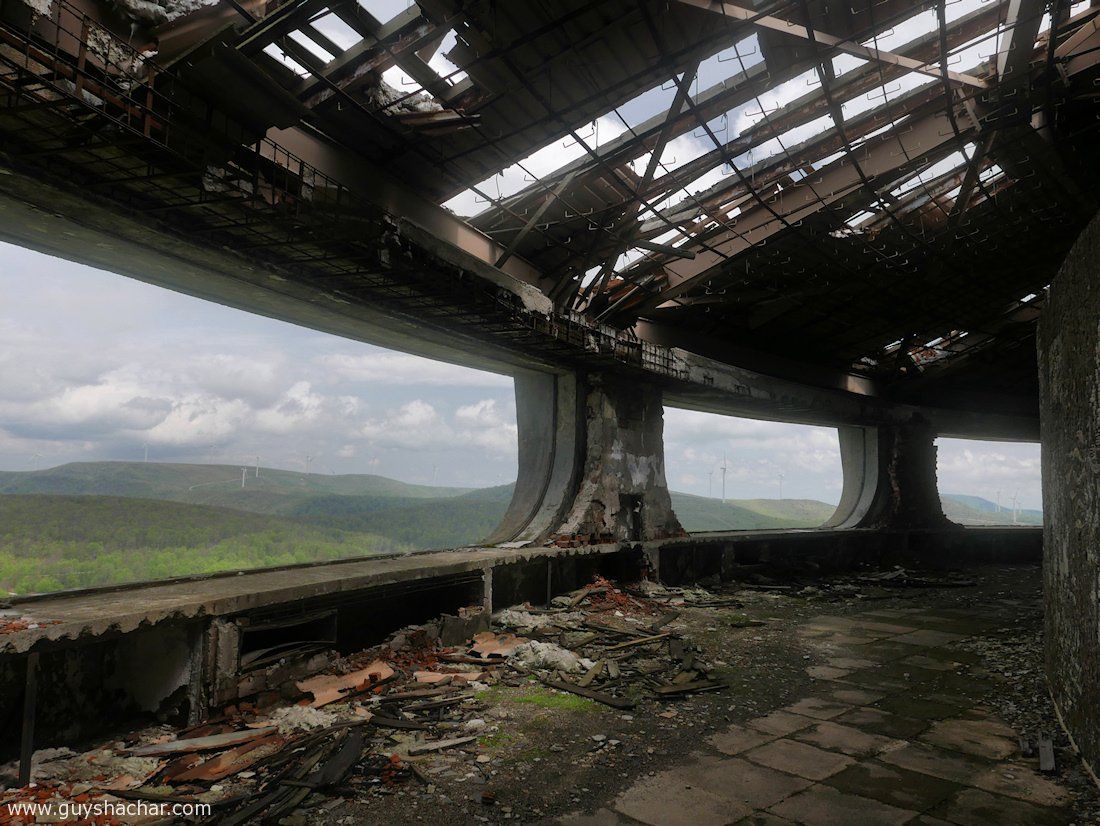
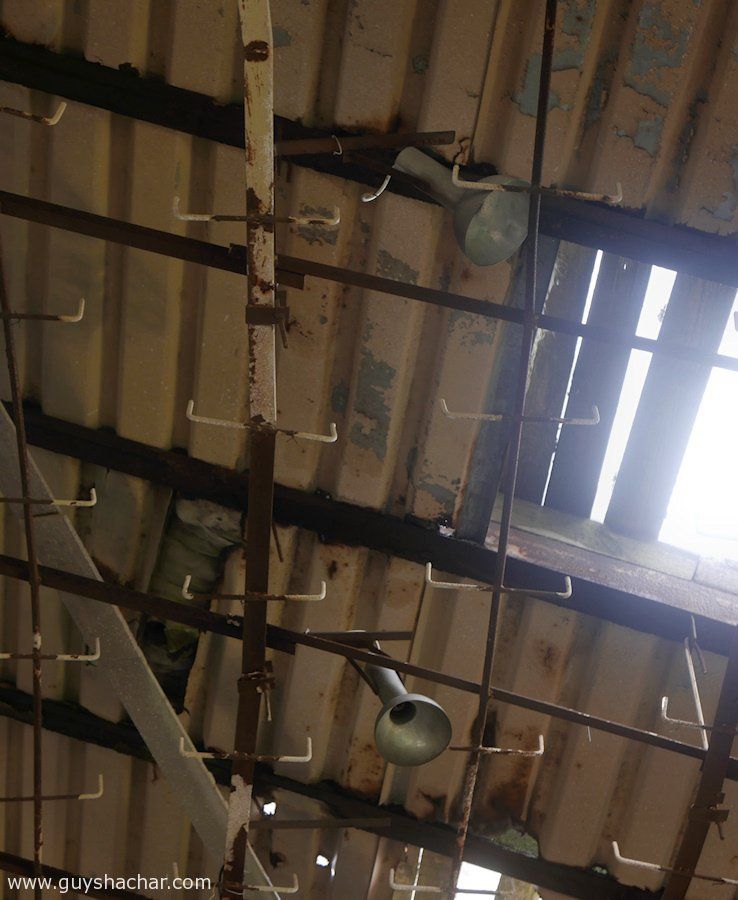
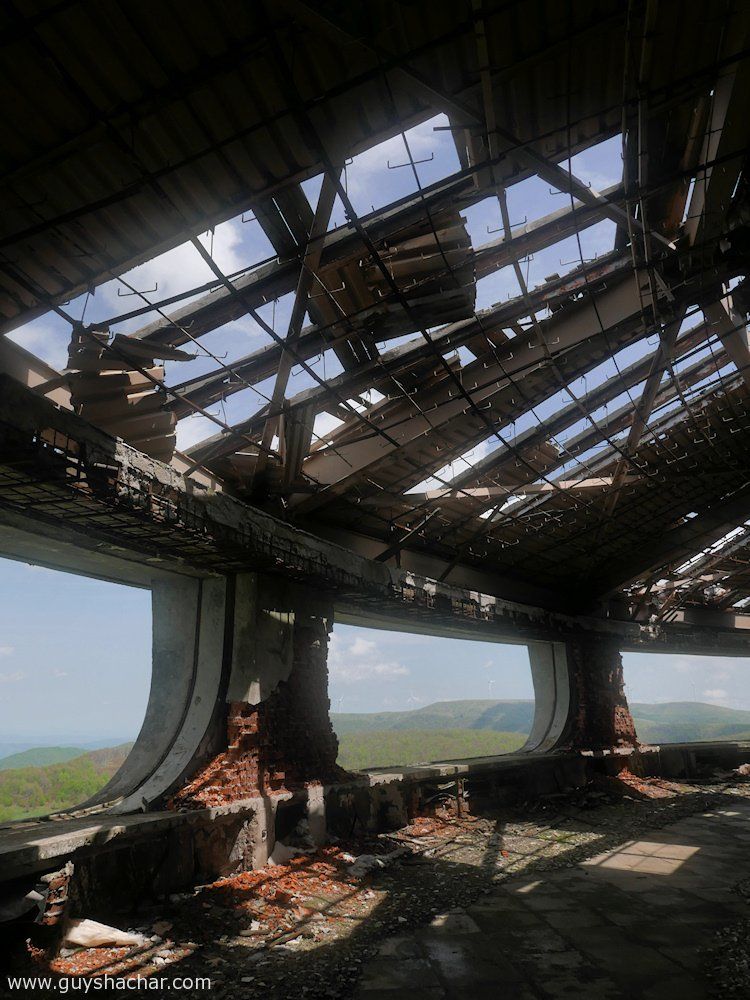
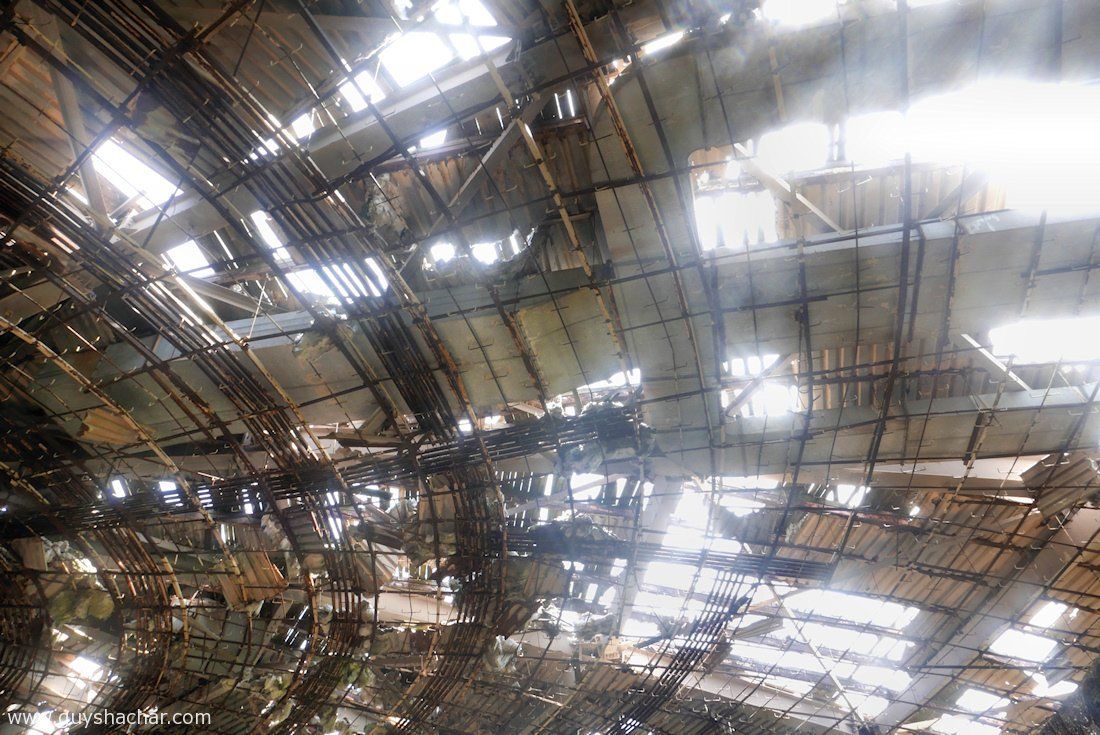
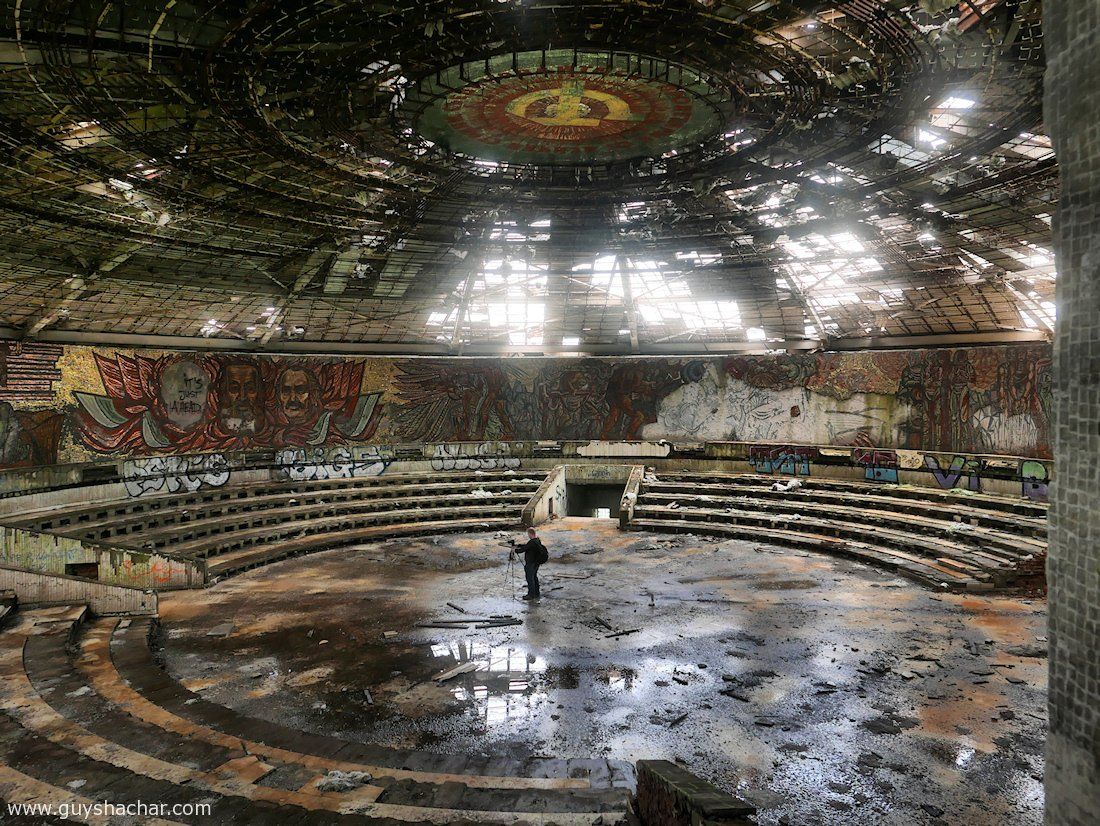
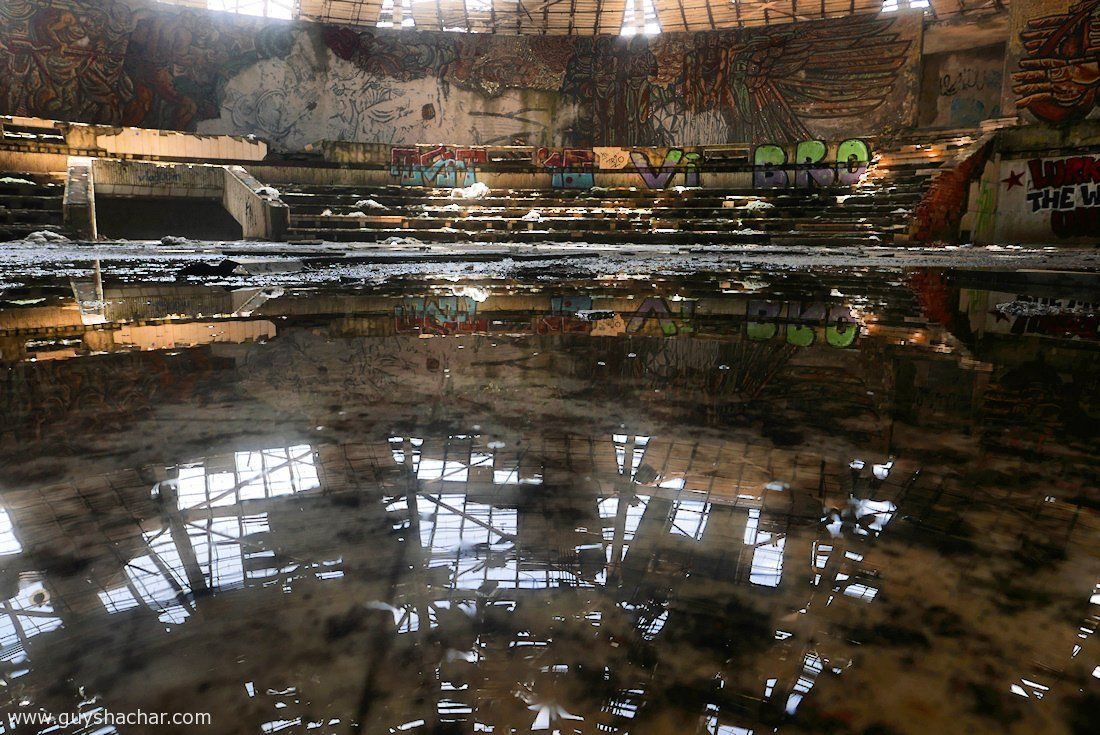
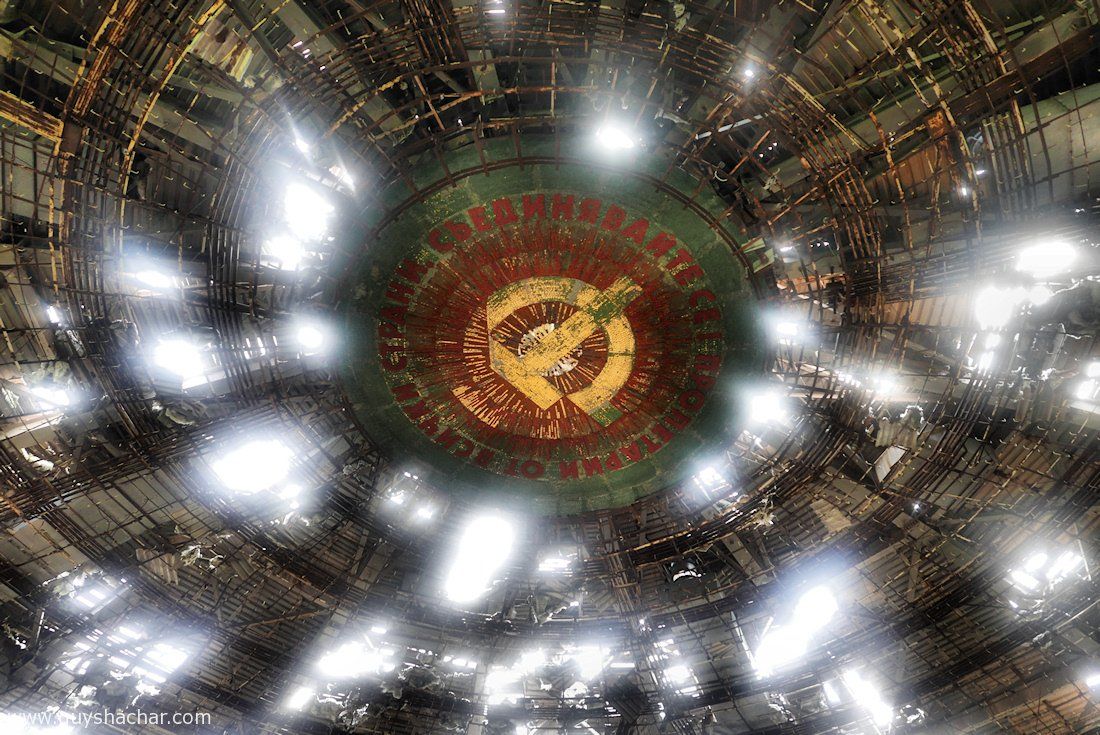
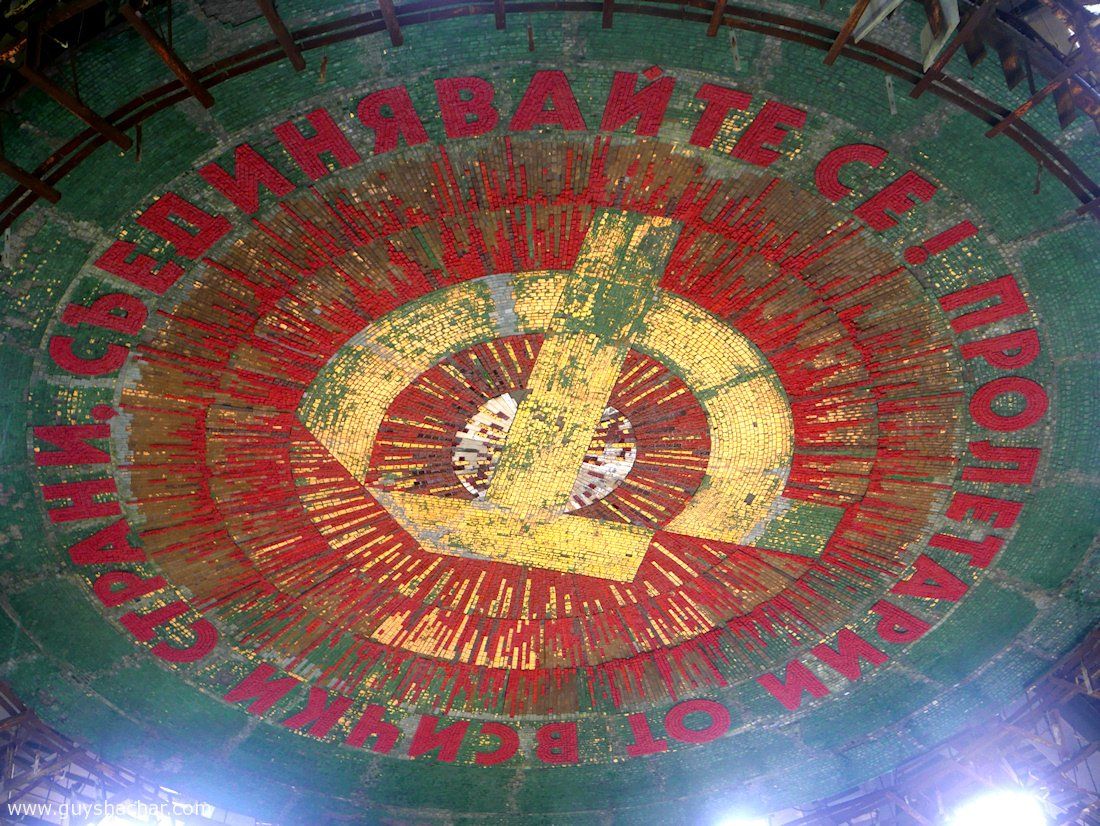
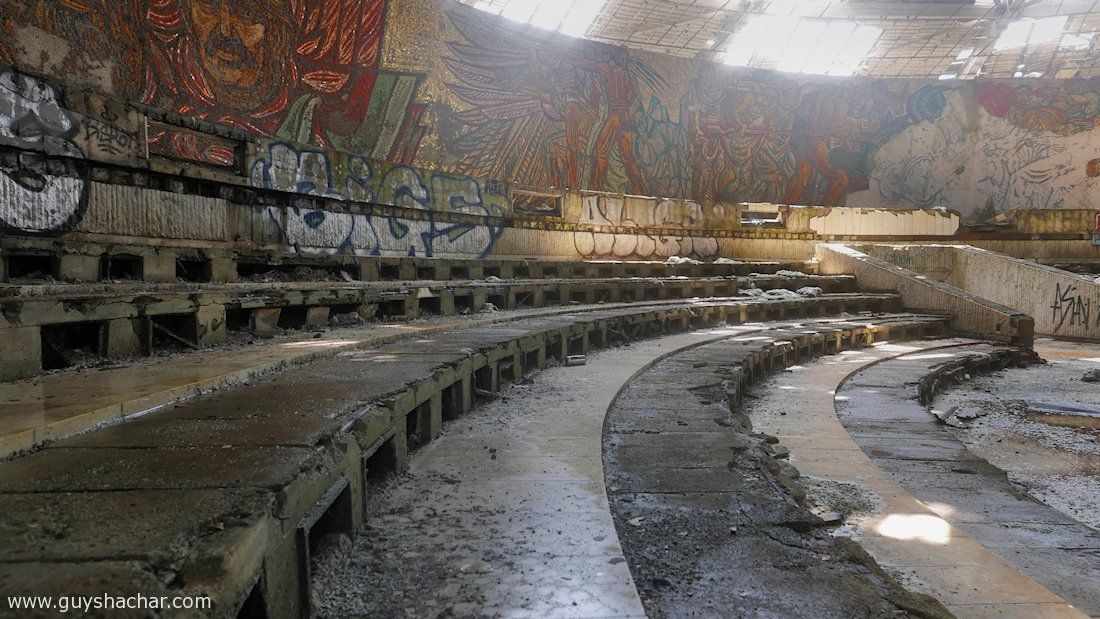
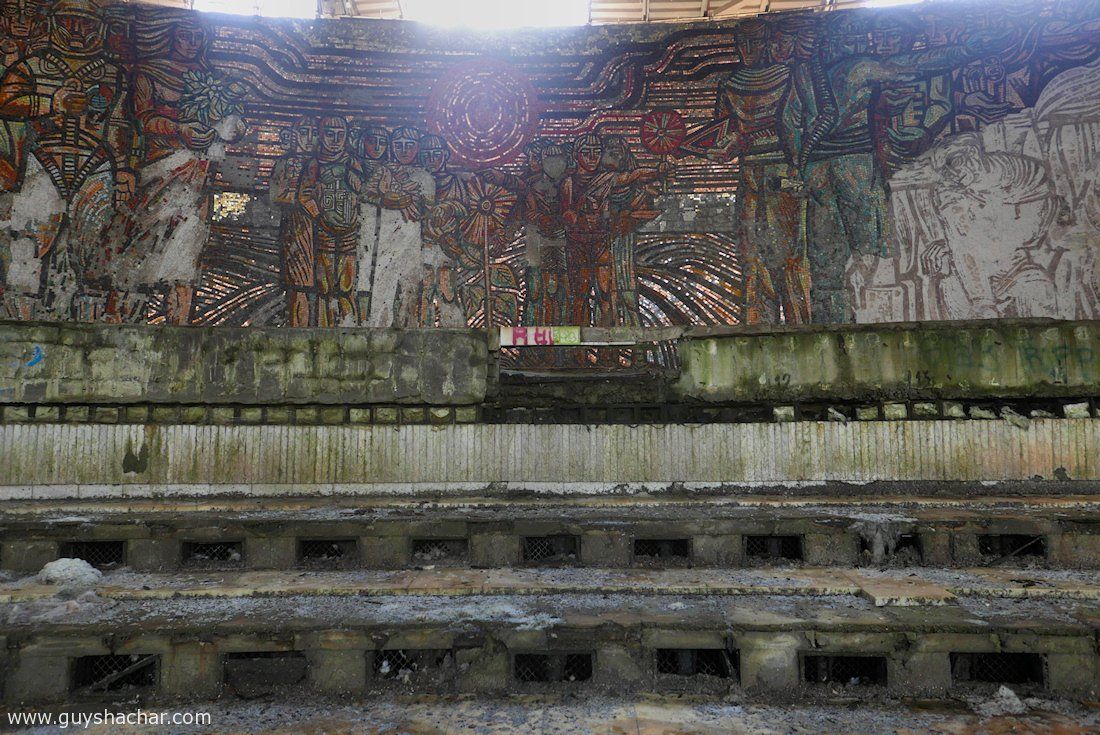
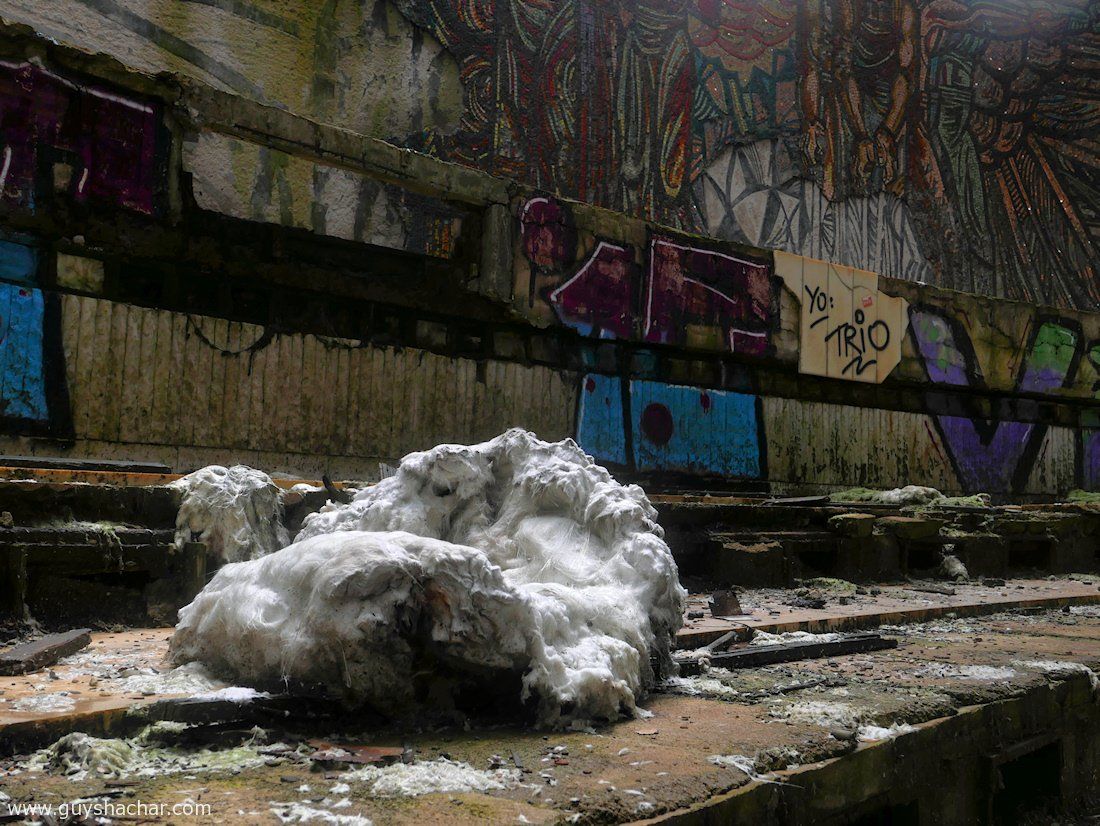
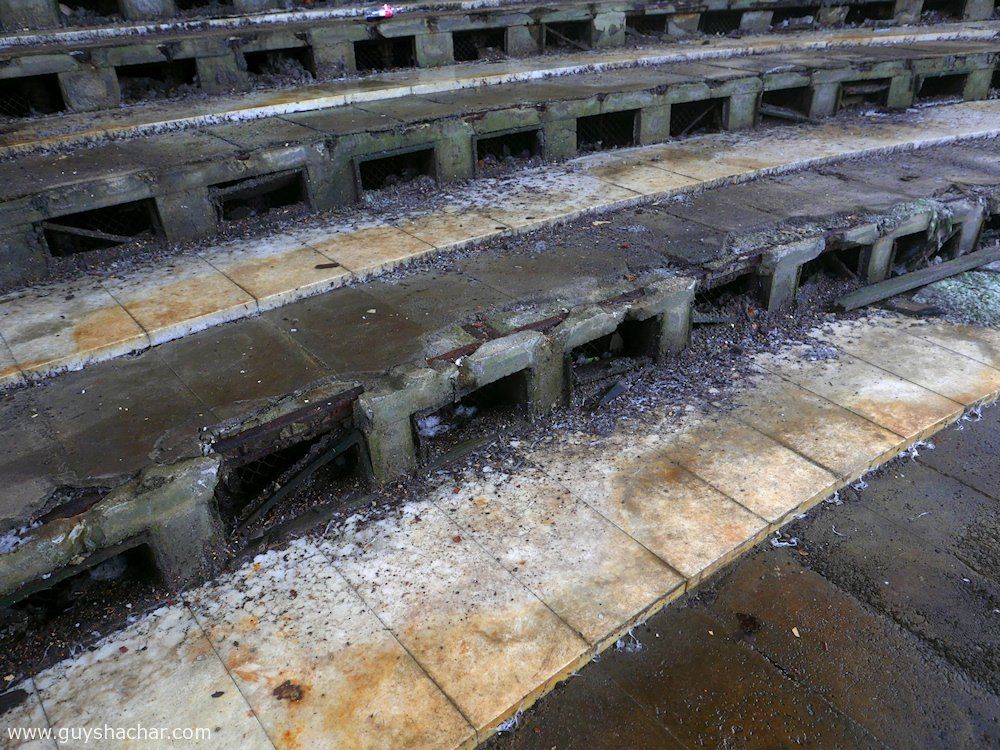
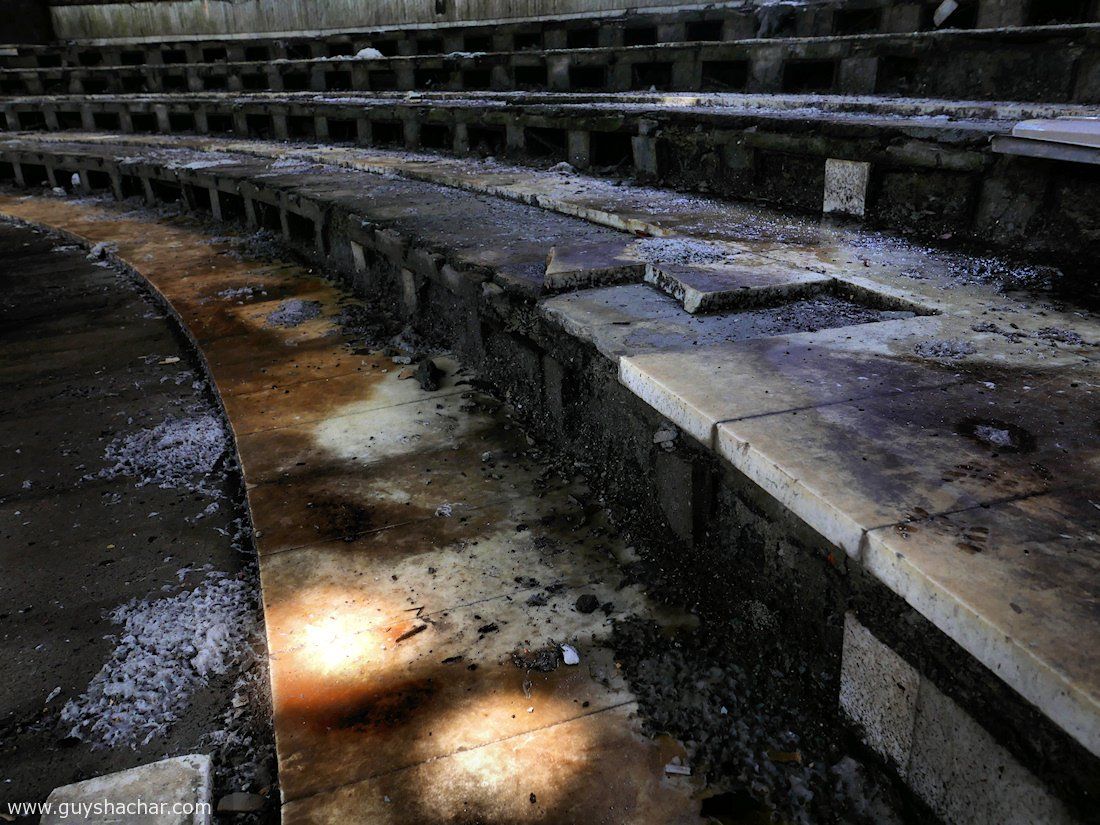
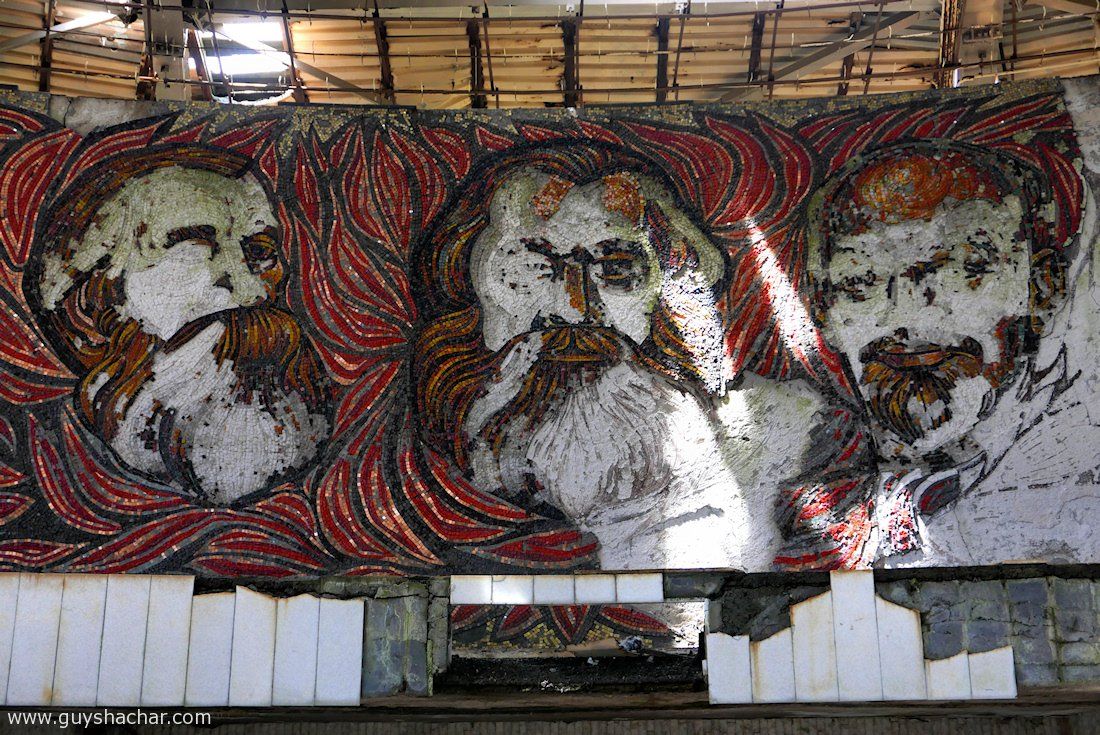
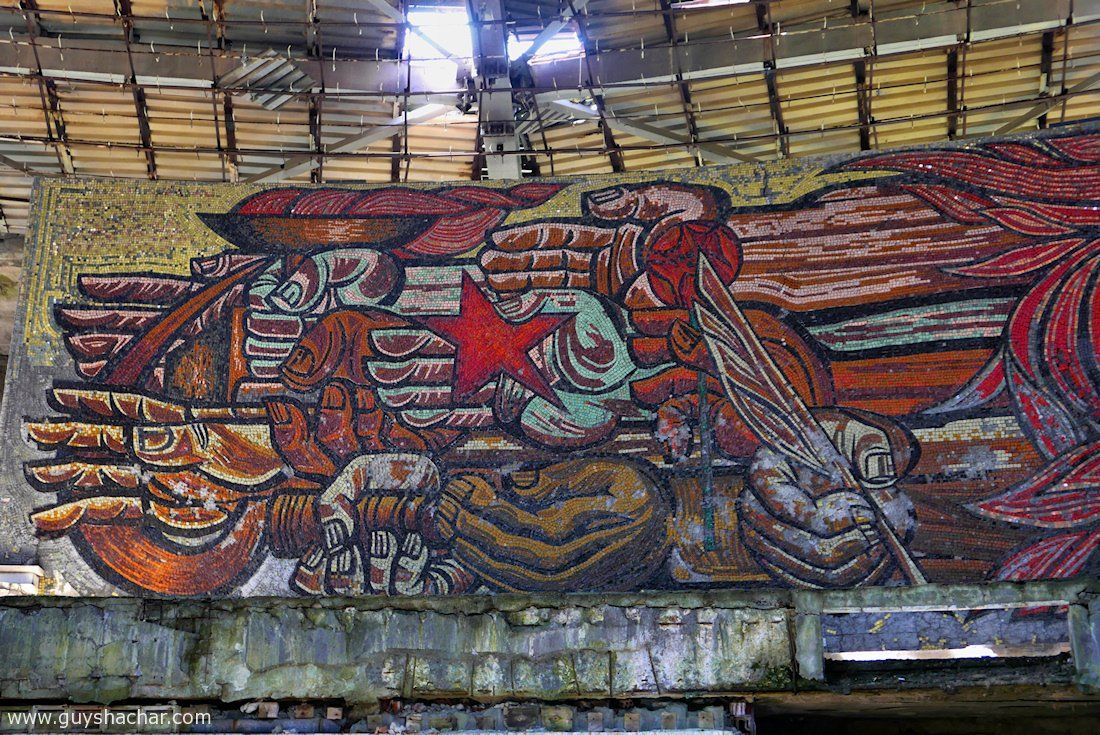
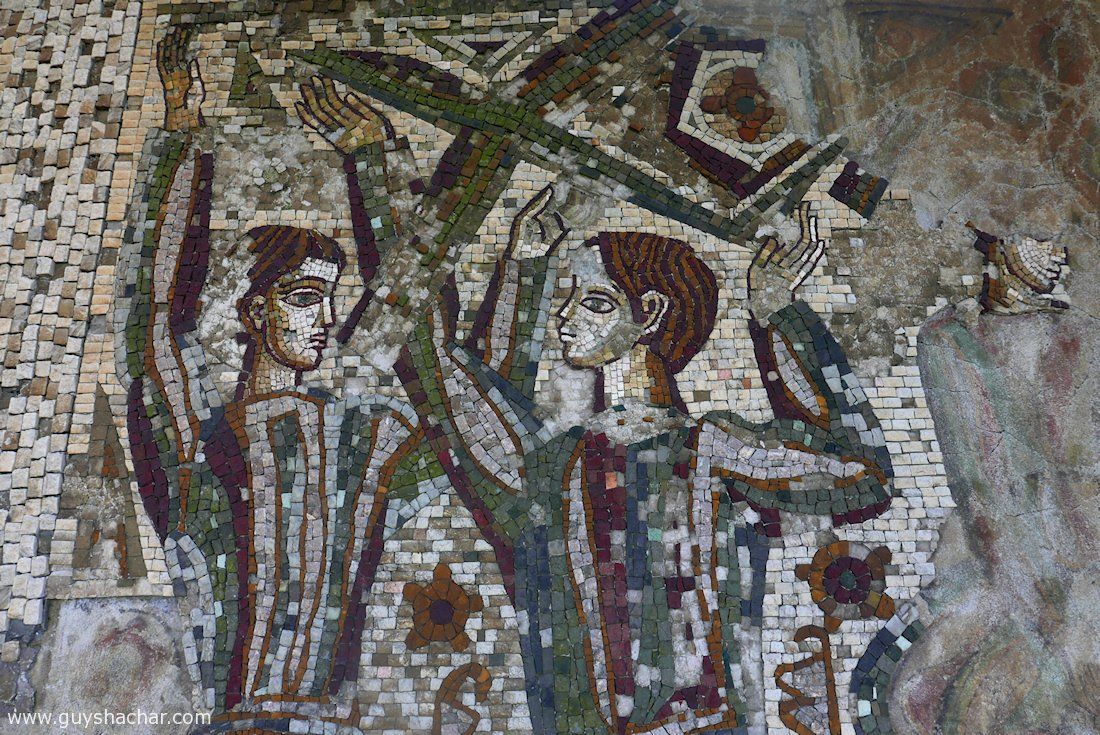
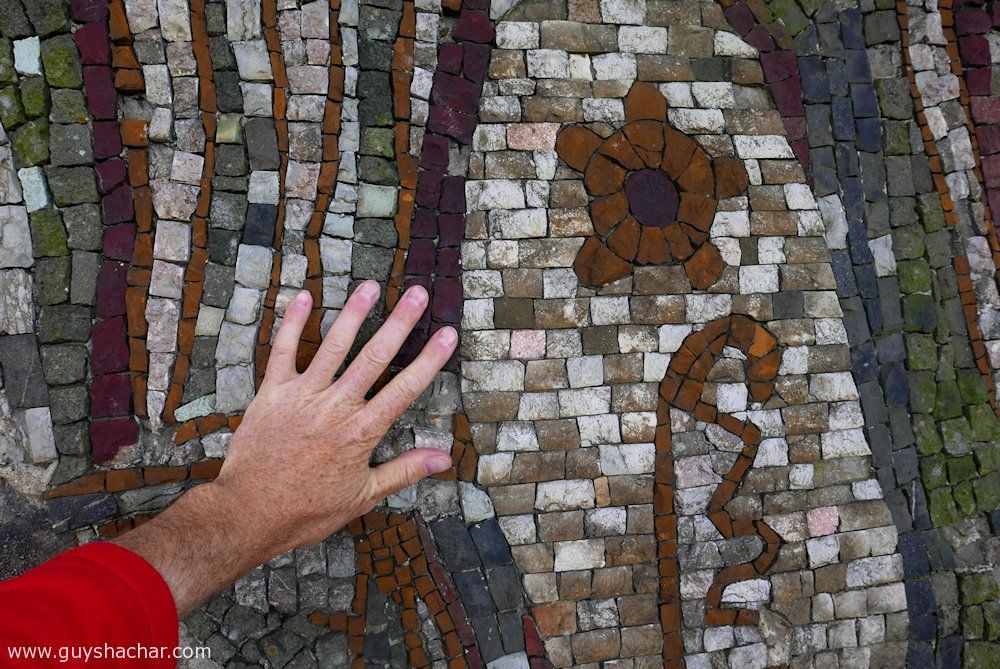
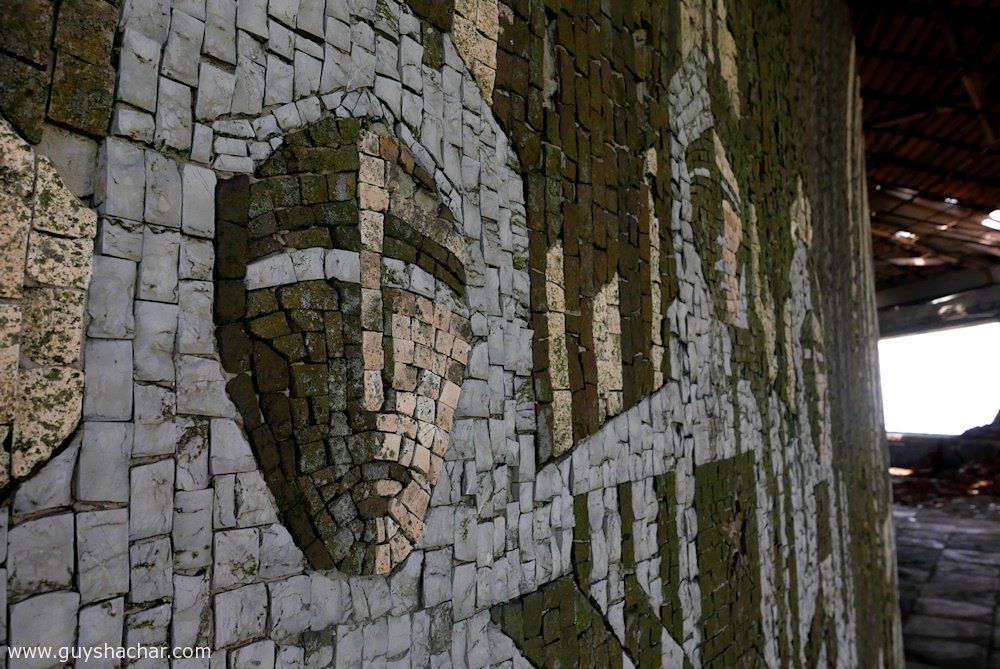
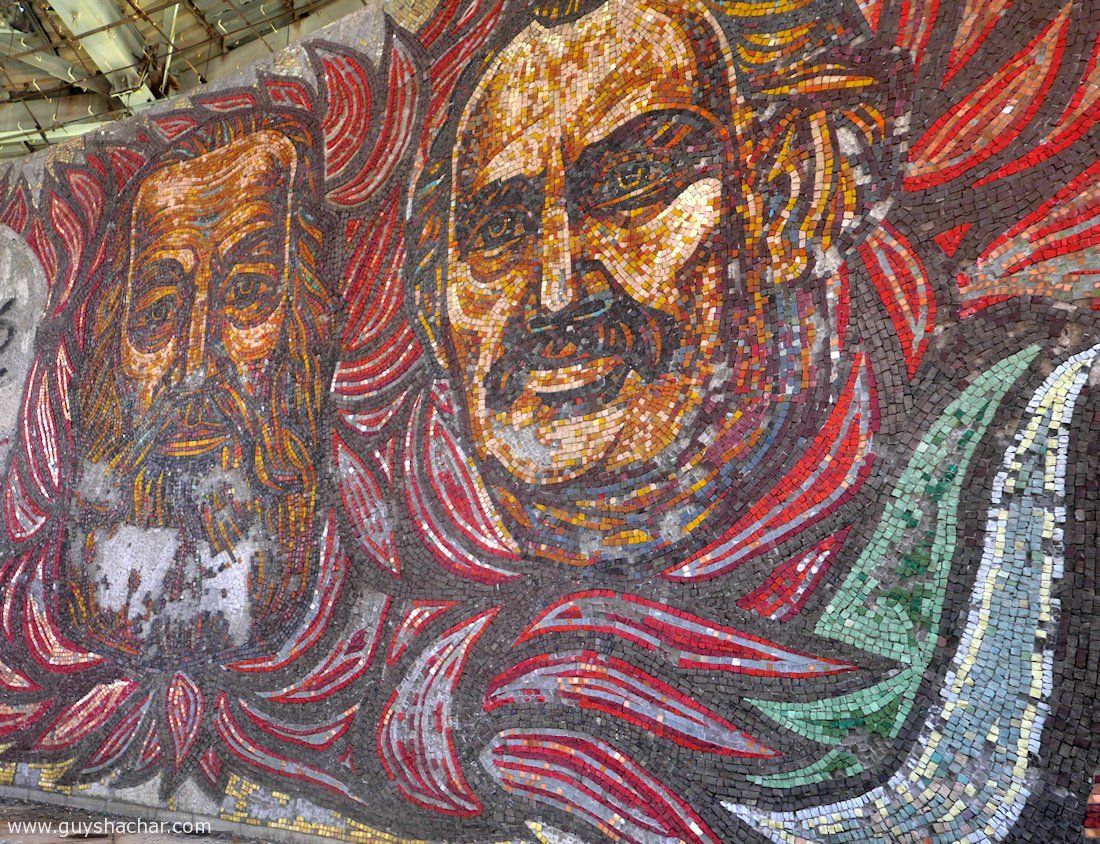
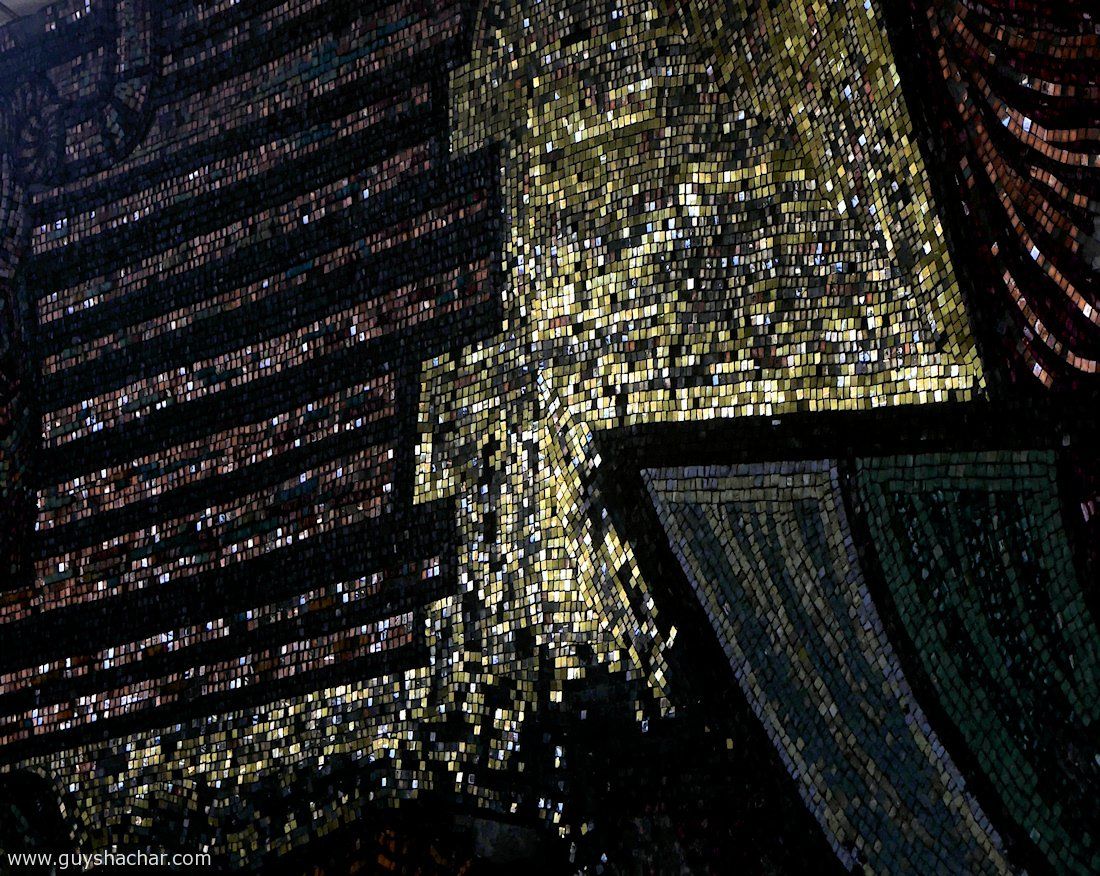
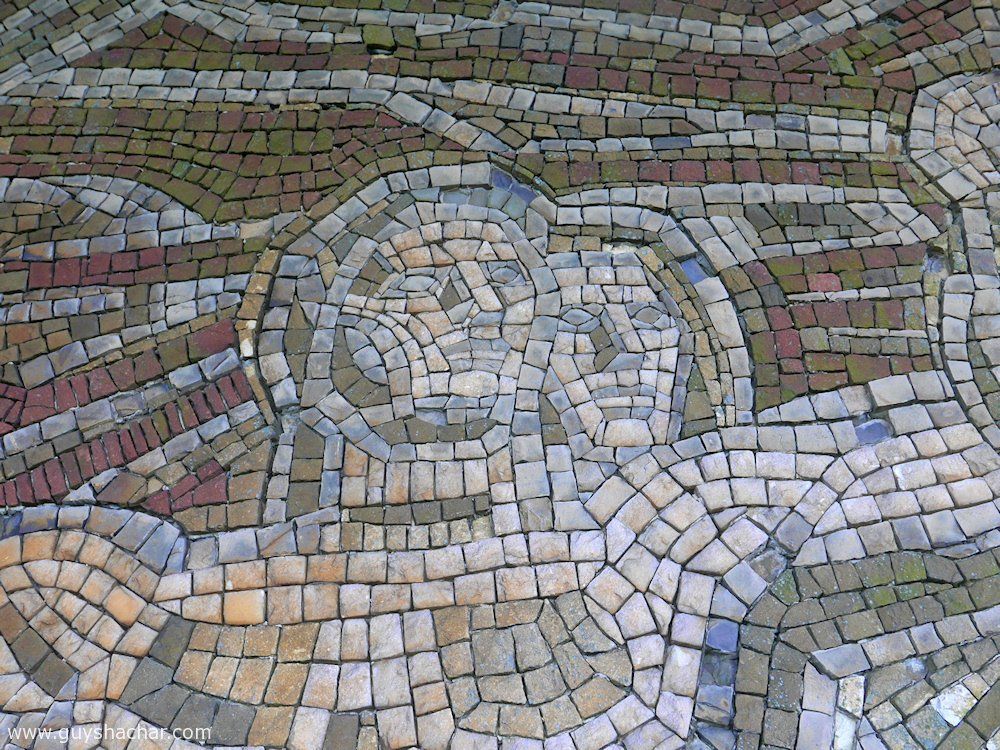
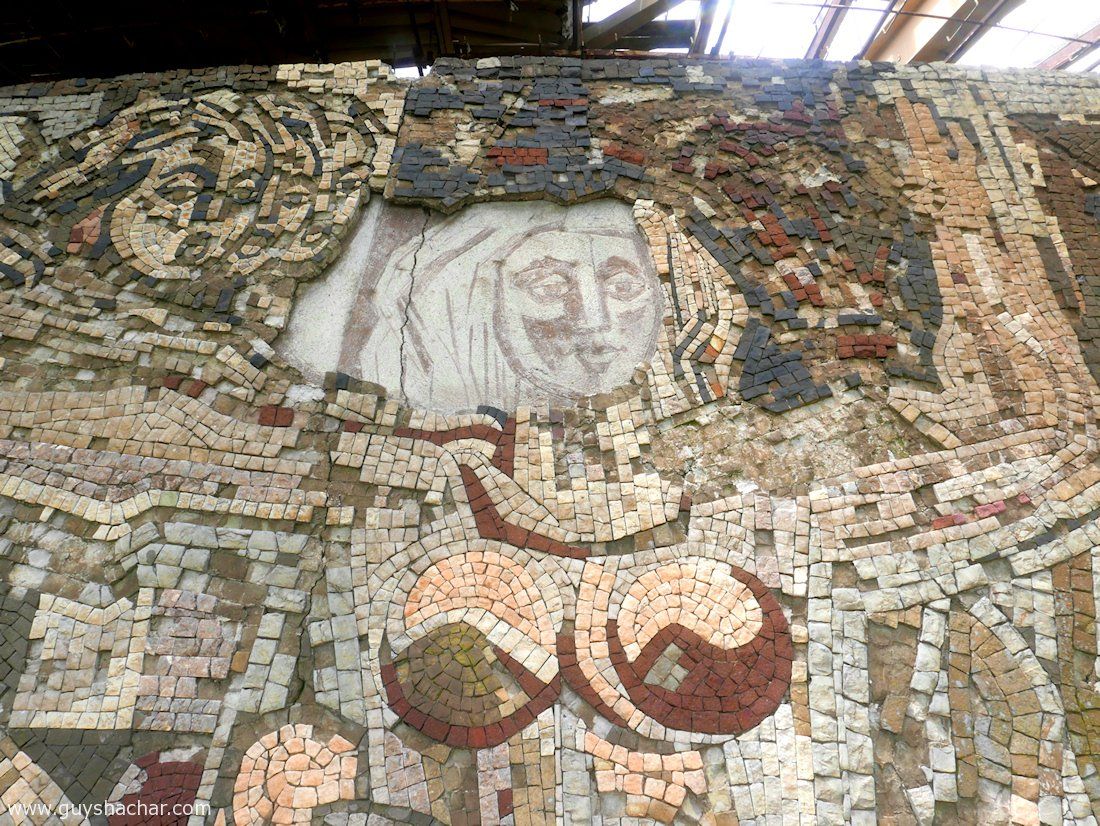
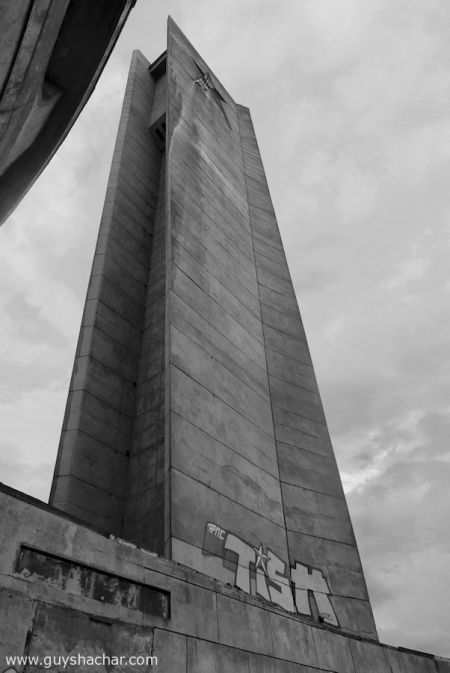
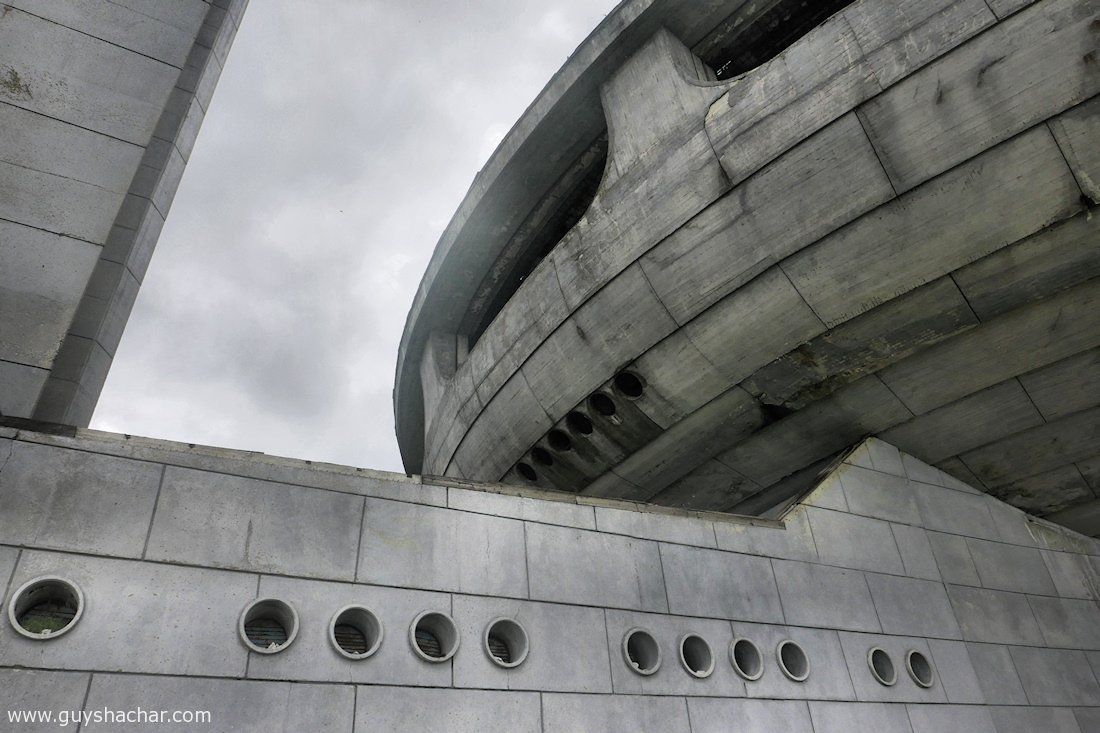
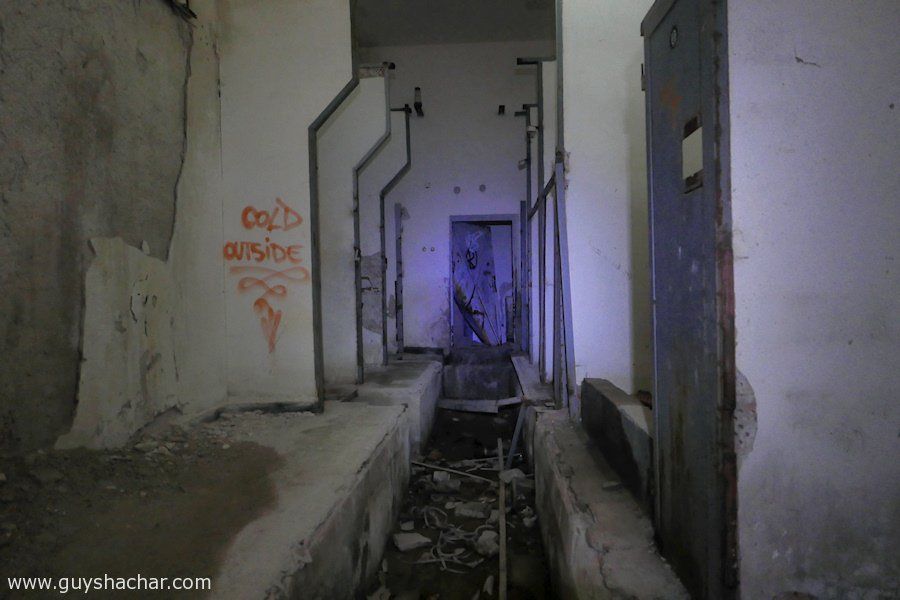
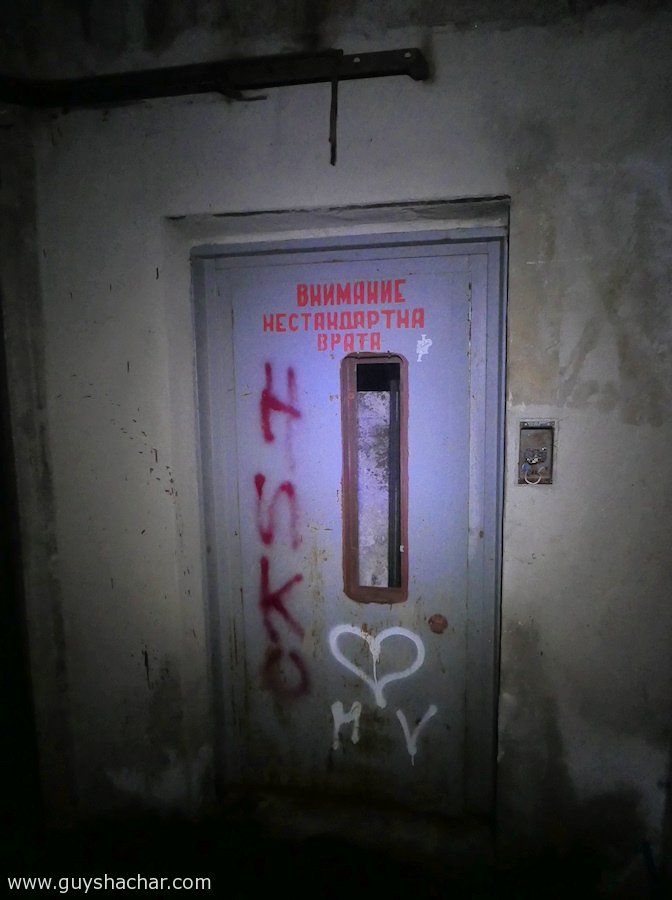
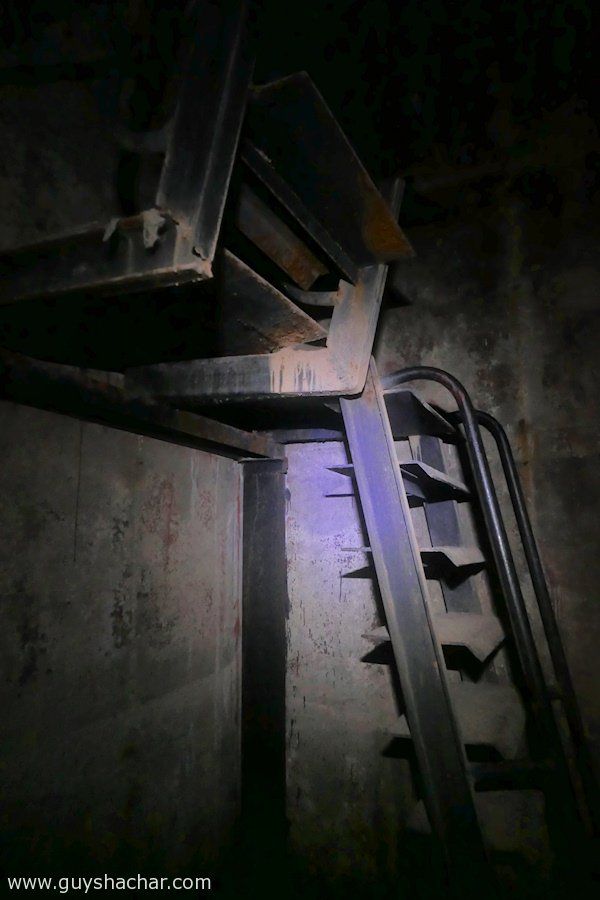
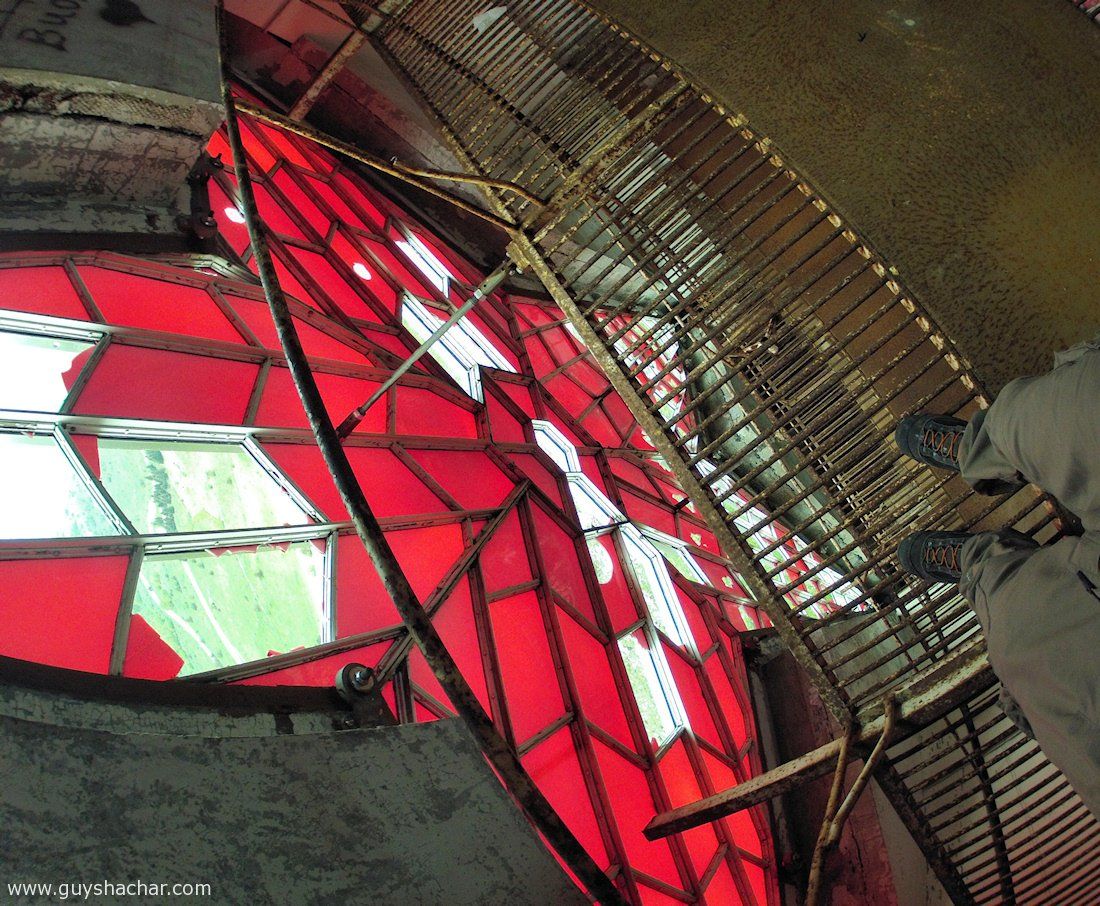
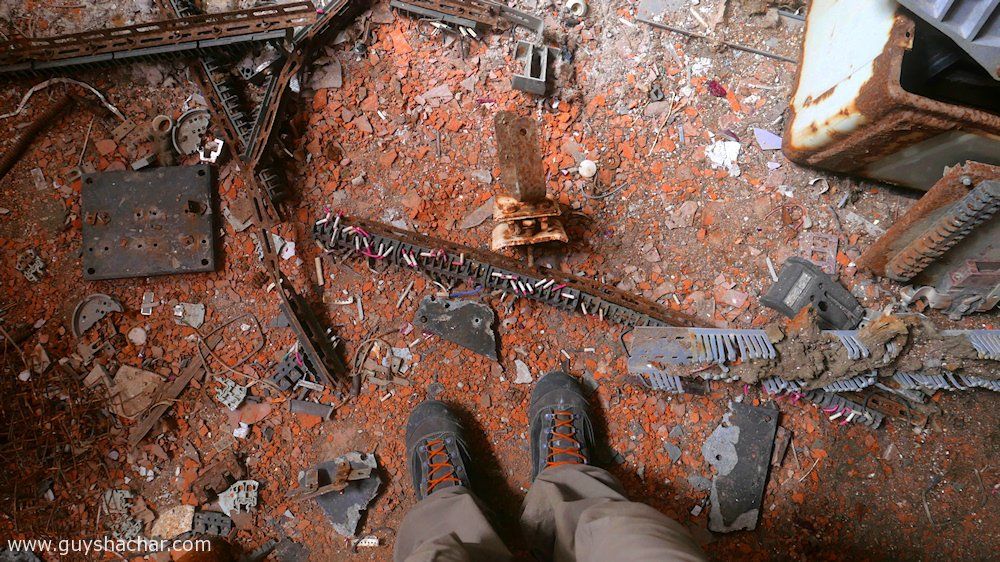
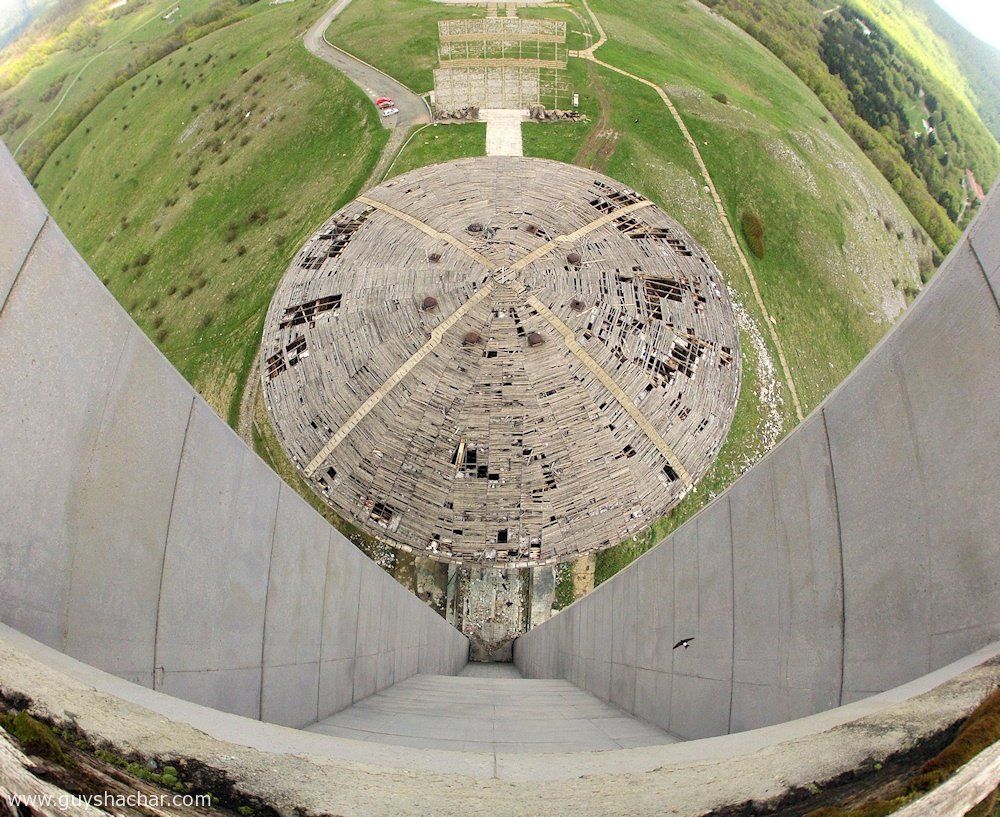
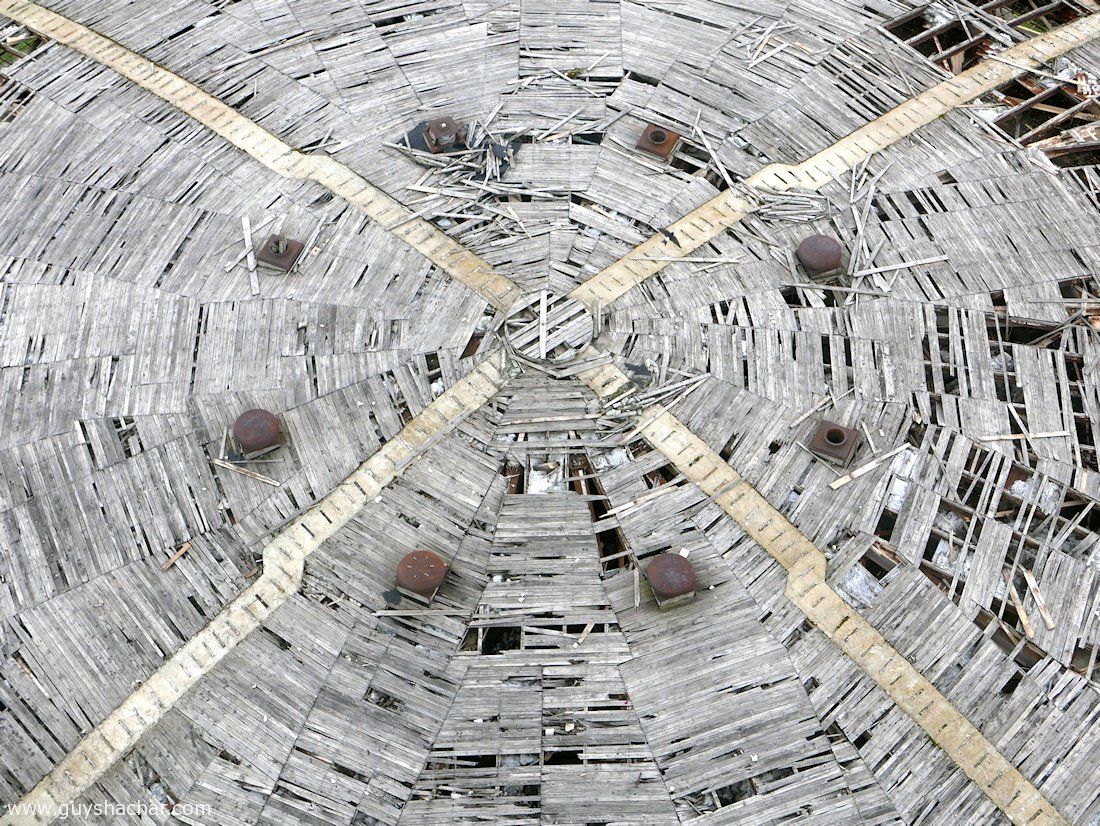
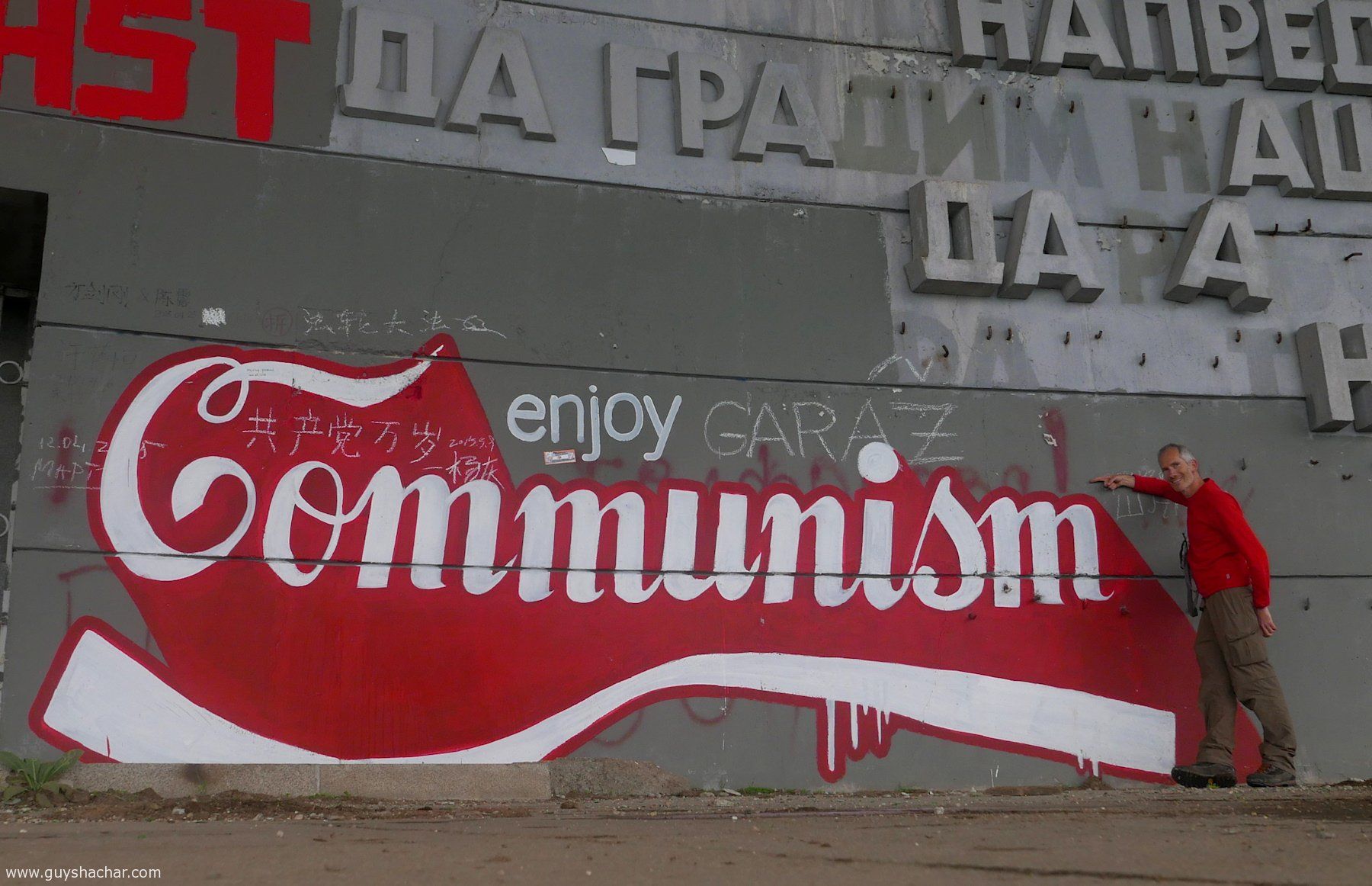
3 Responses
Sarah, Johannesburg
Ugly and dirty place.
I cannot respect such a placed, from all aspects.
rami ,
where it is this place? what is the way to cone by car?
Reply: The monument is accessible by car through Shipka Pass, south of Veliko Tarnovo
Adriana Vasilkova
Great post and photos. Buzludzha is my favorite place in Bulgaria and I am so happy to see that you had a lot of fun there. :))))